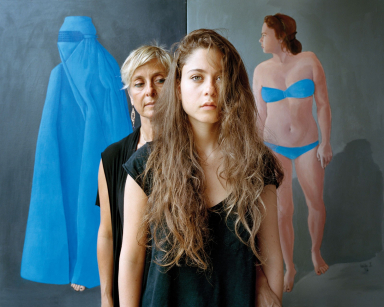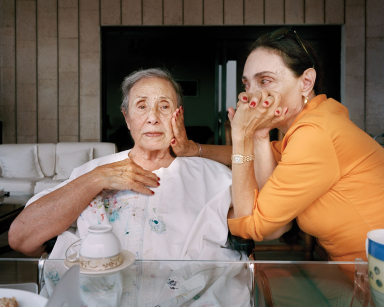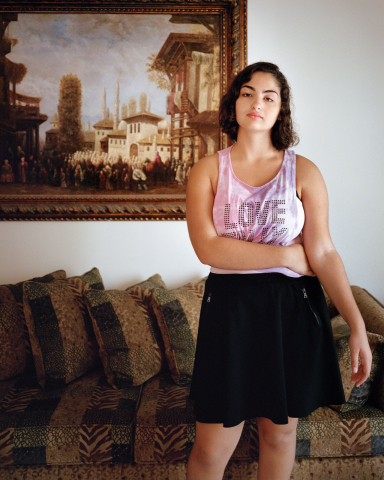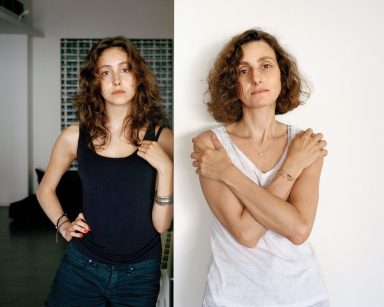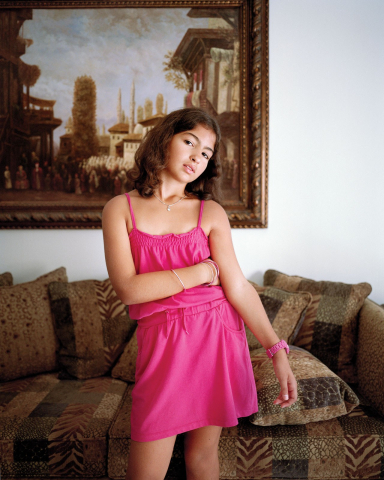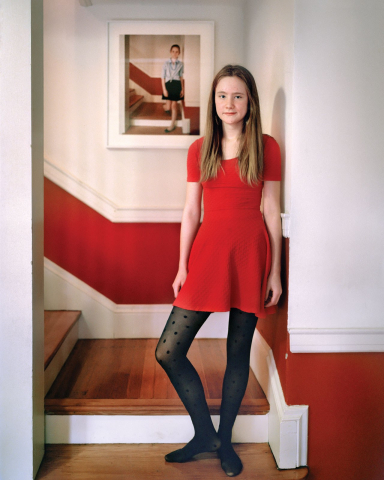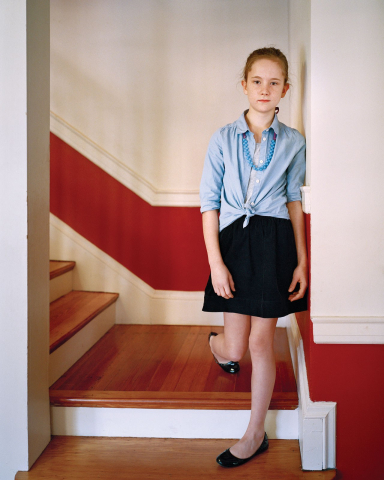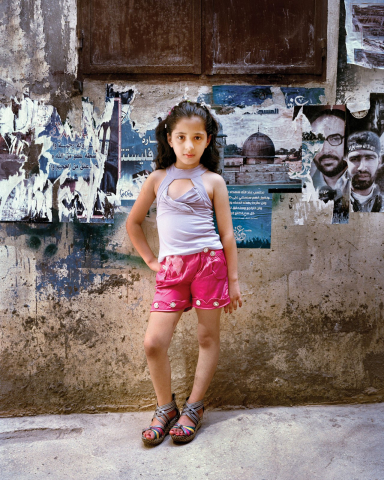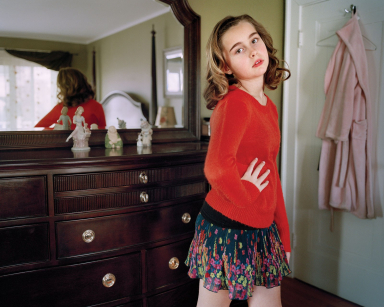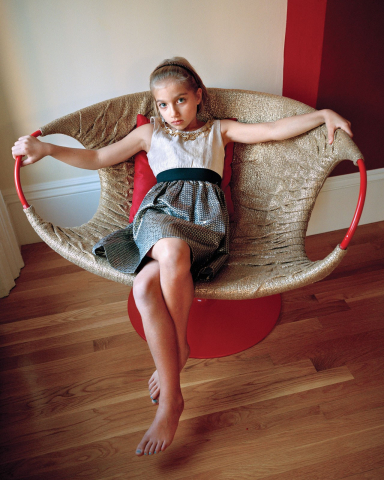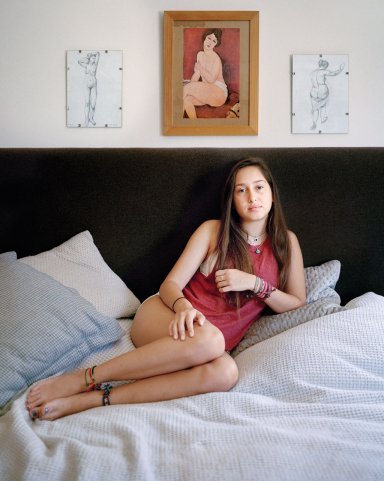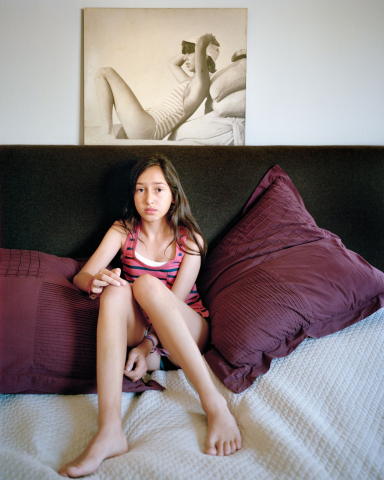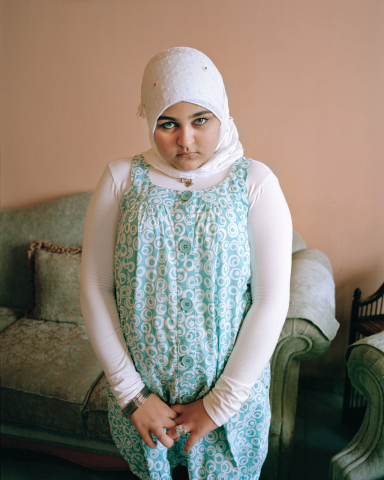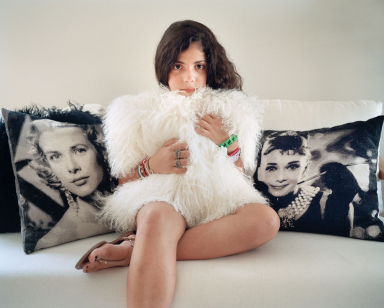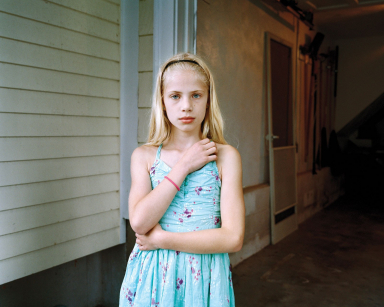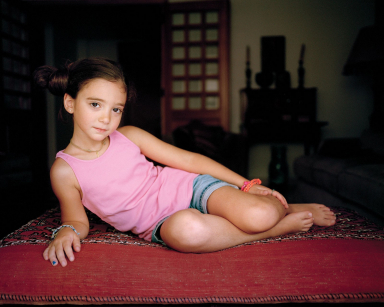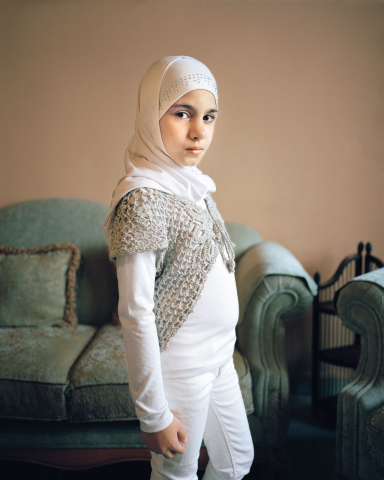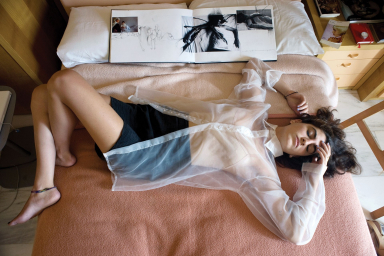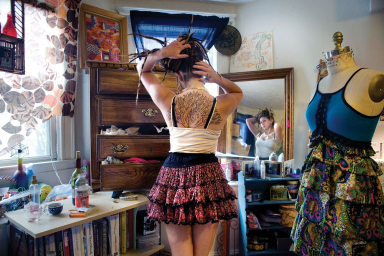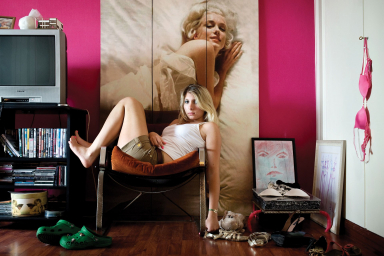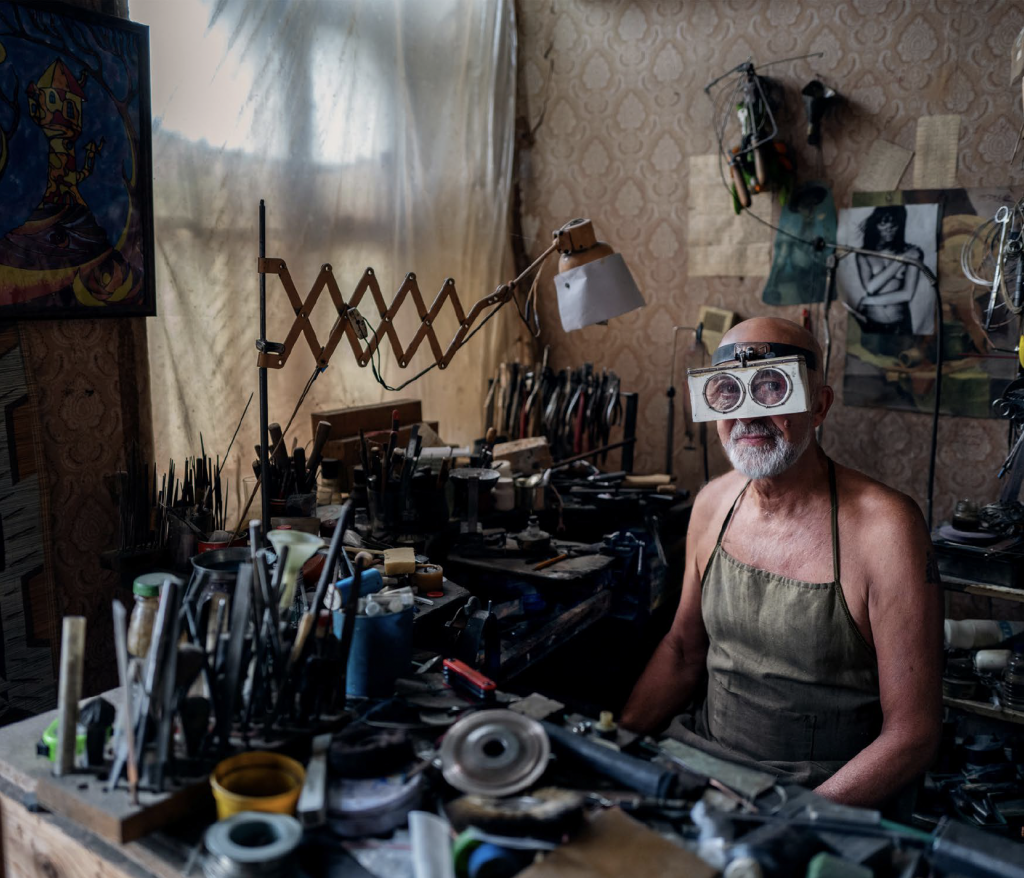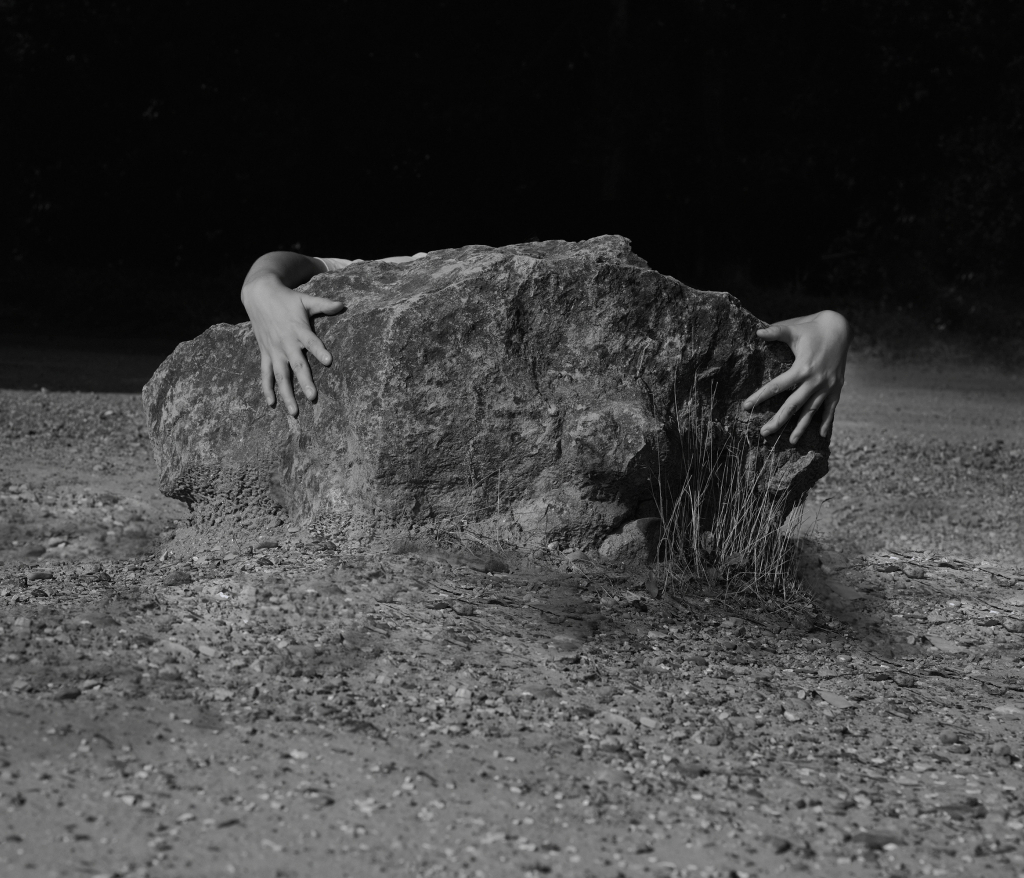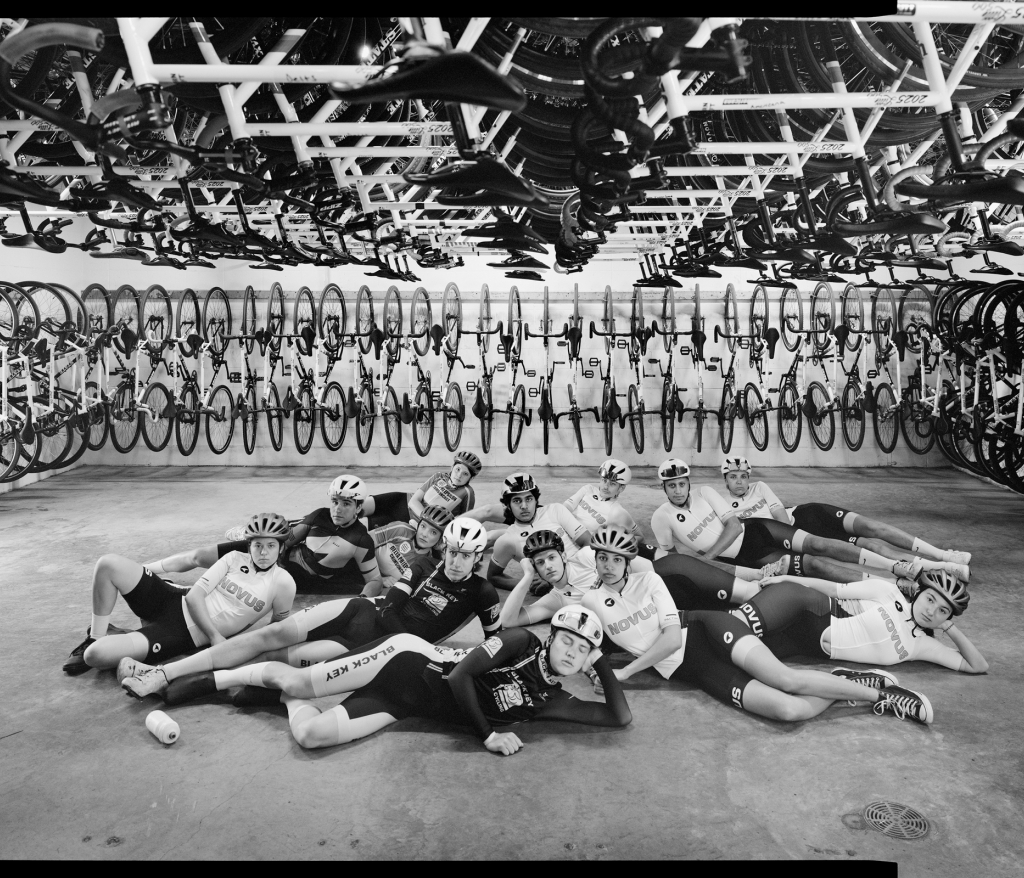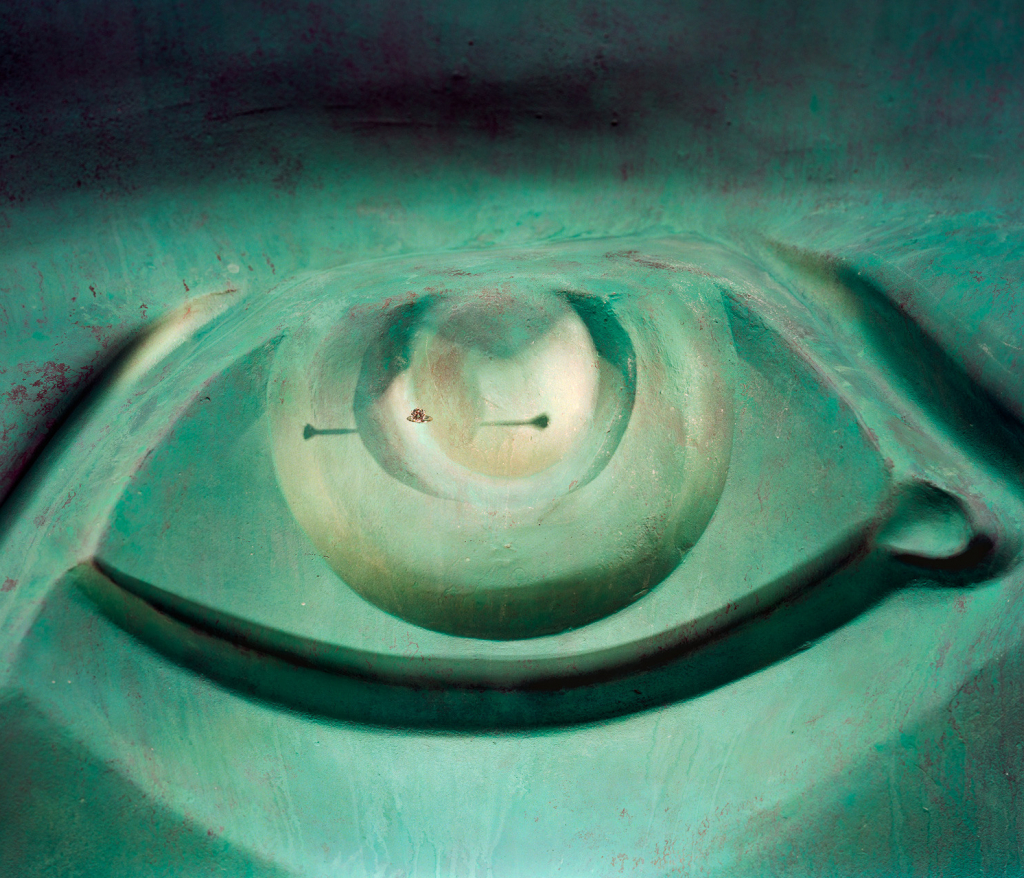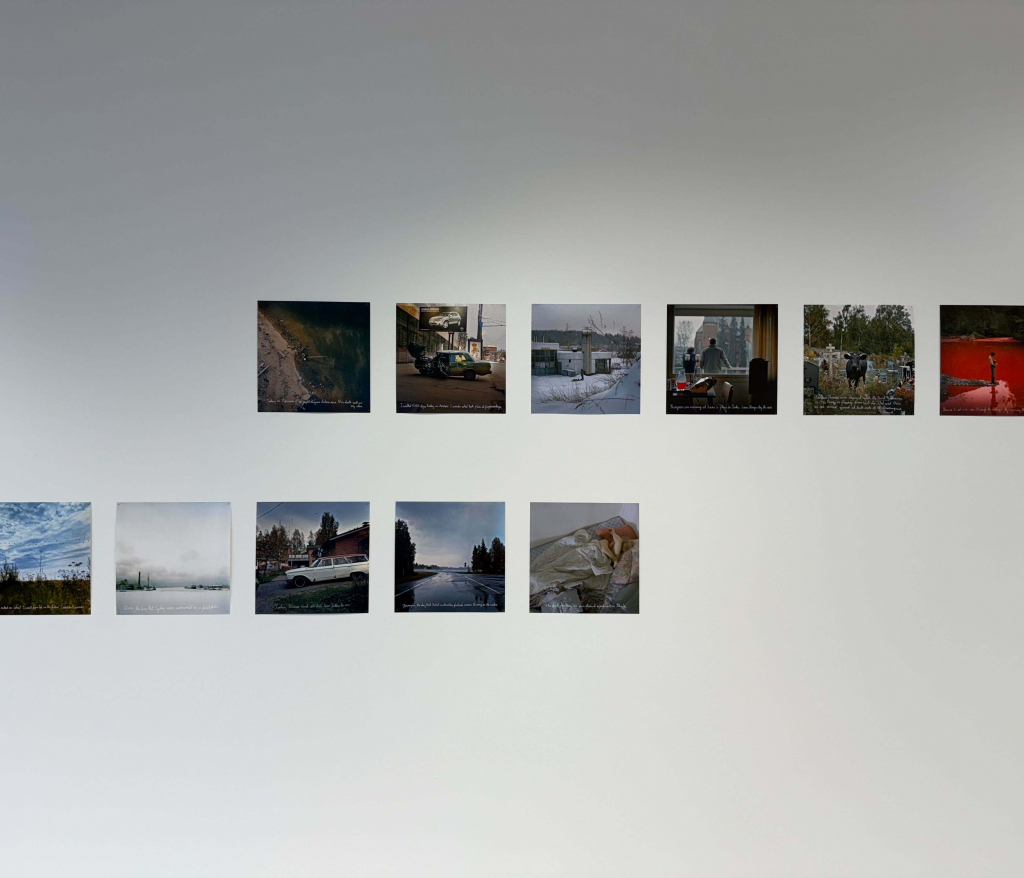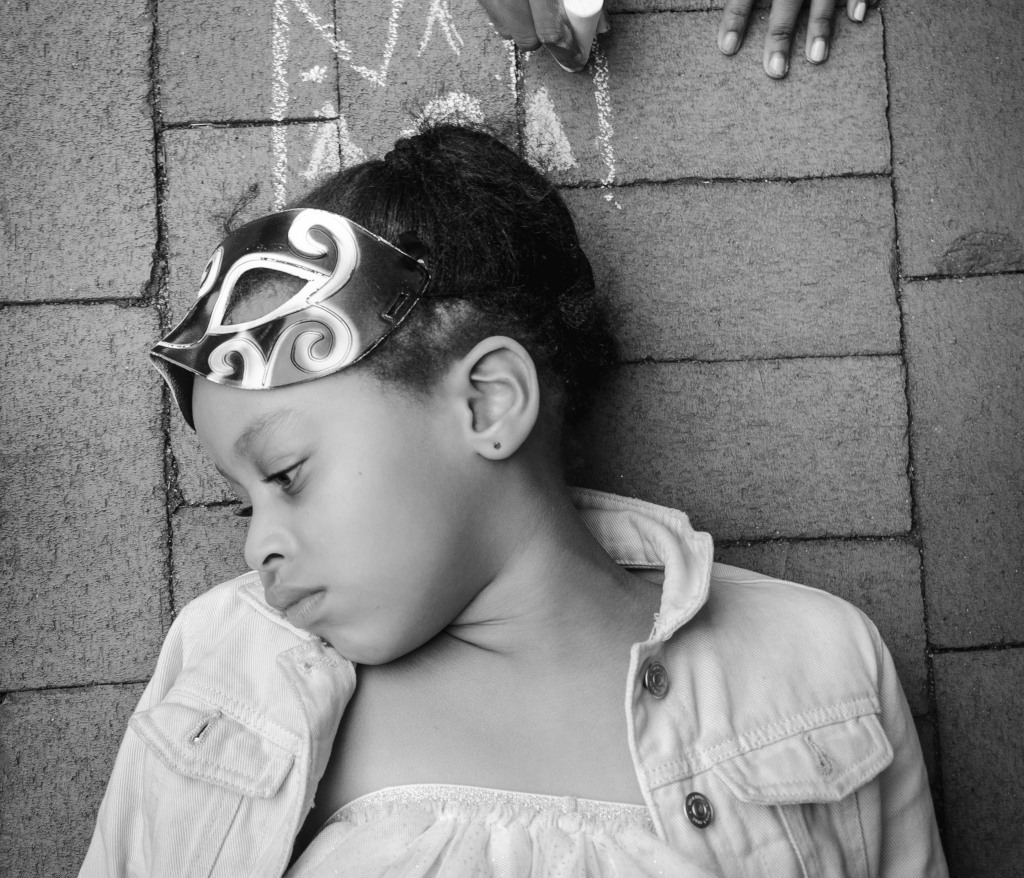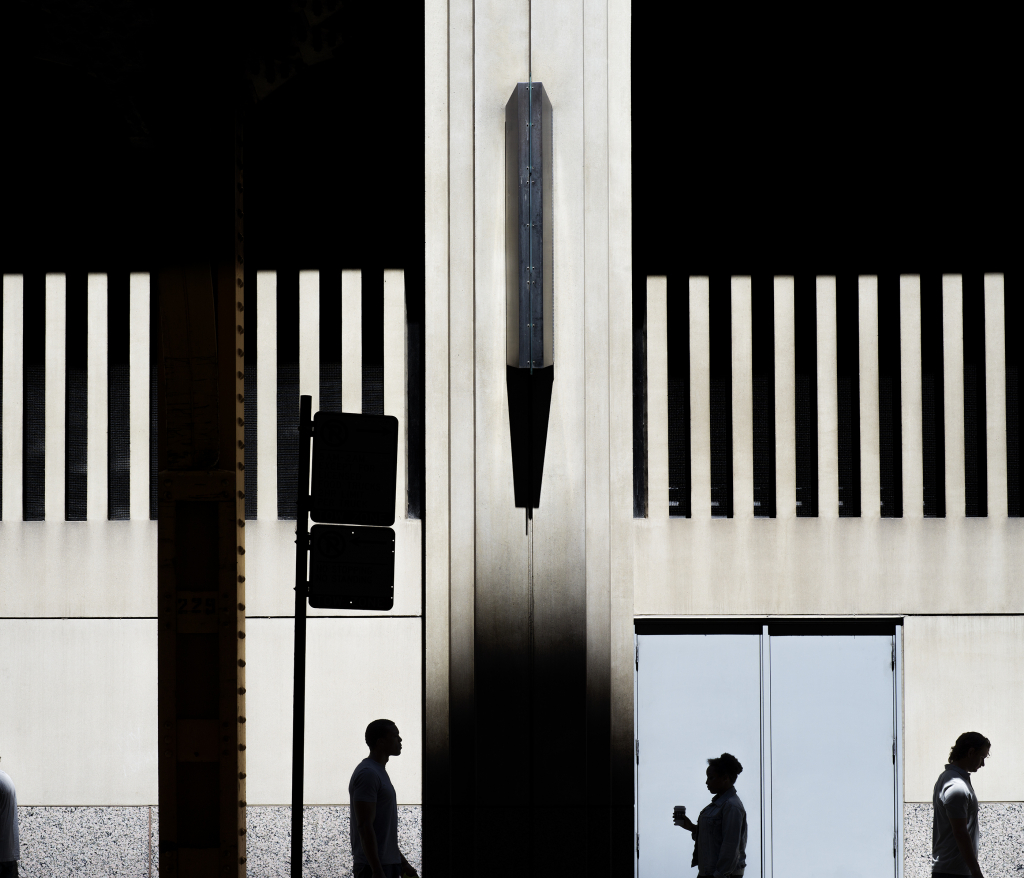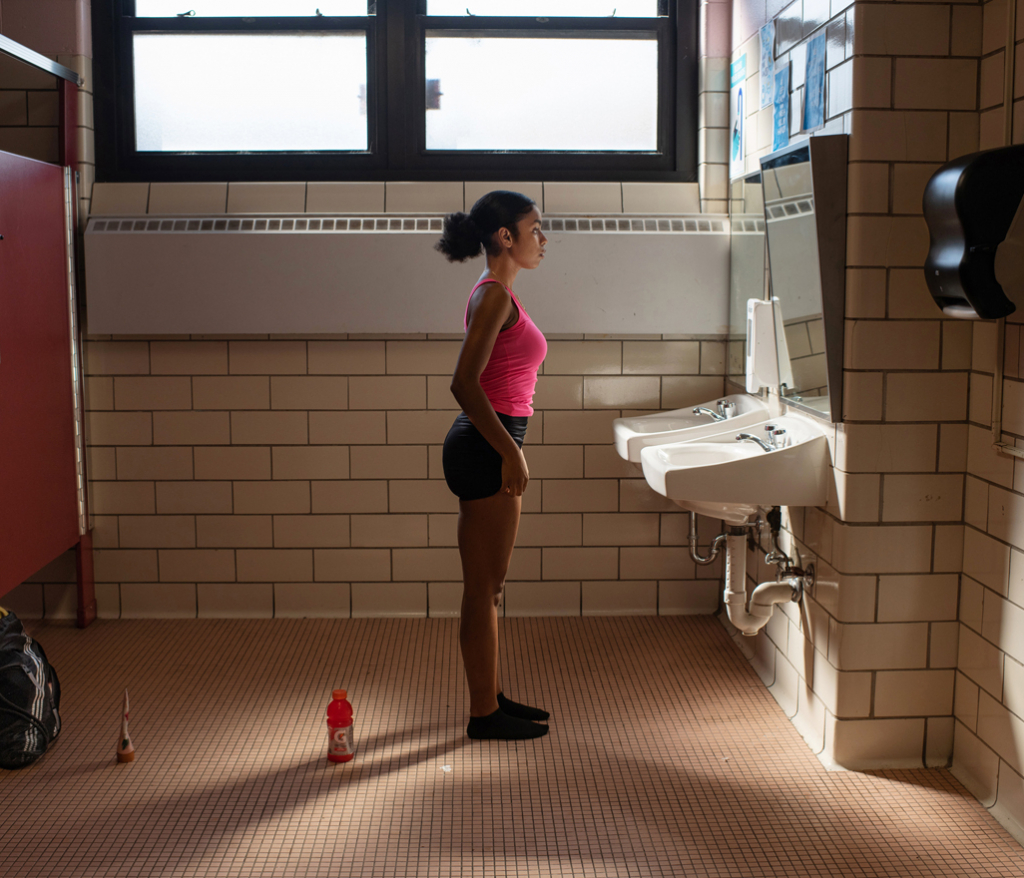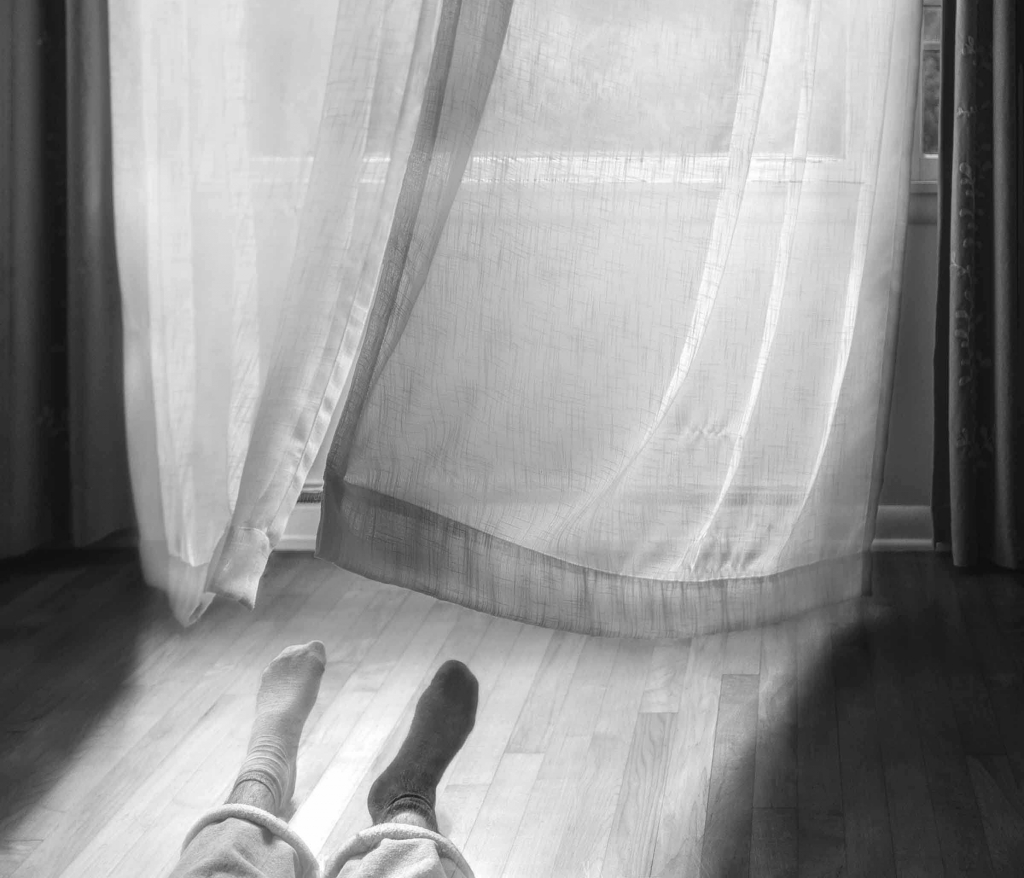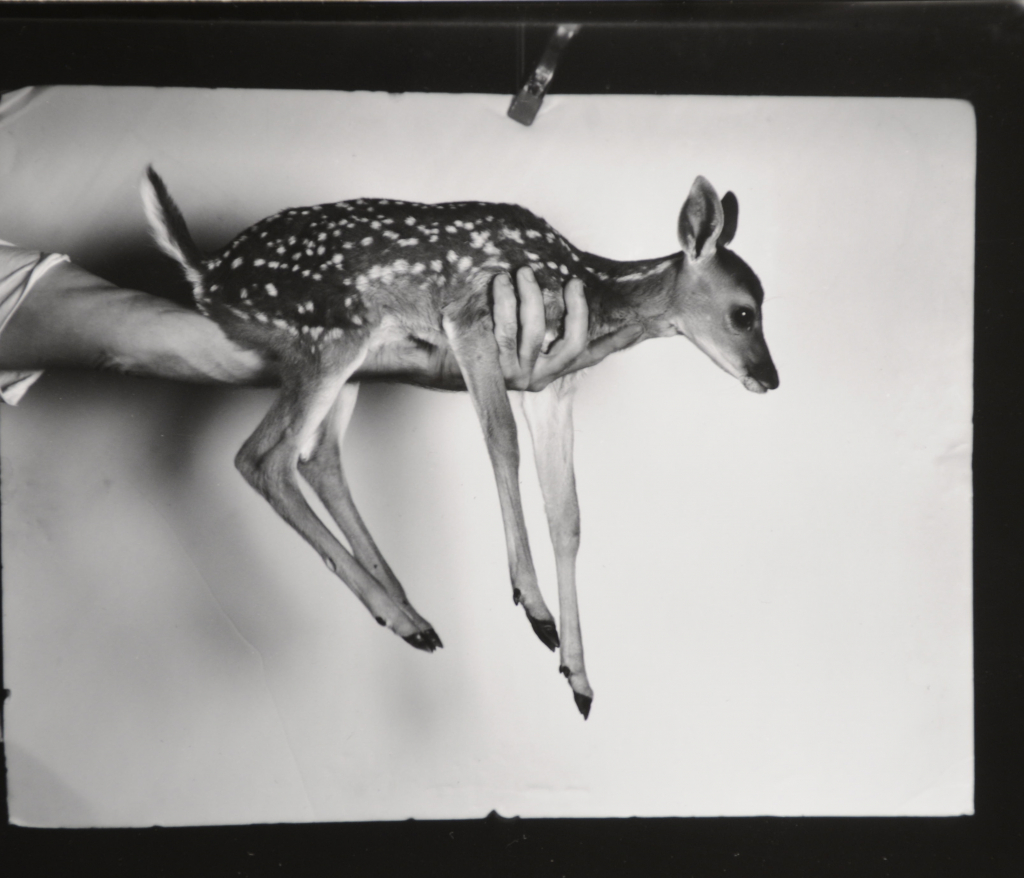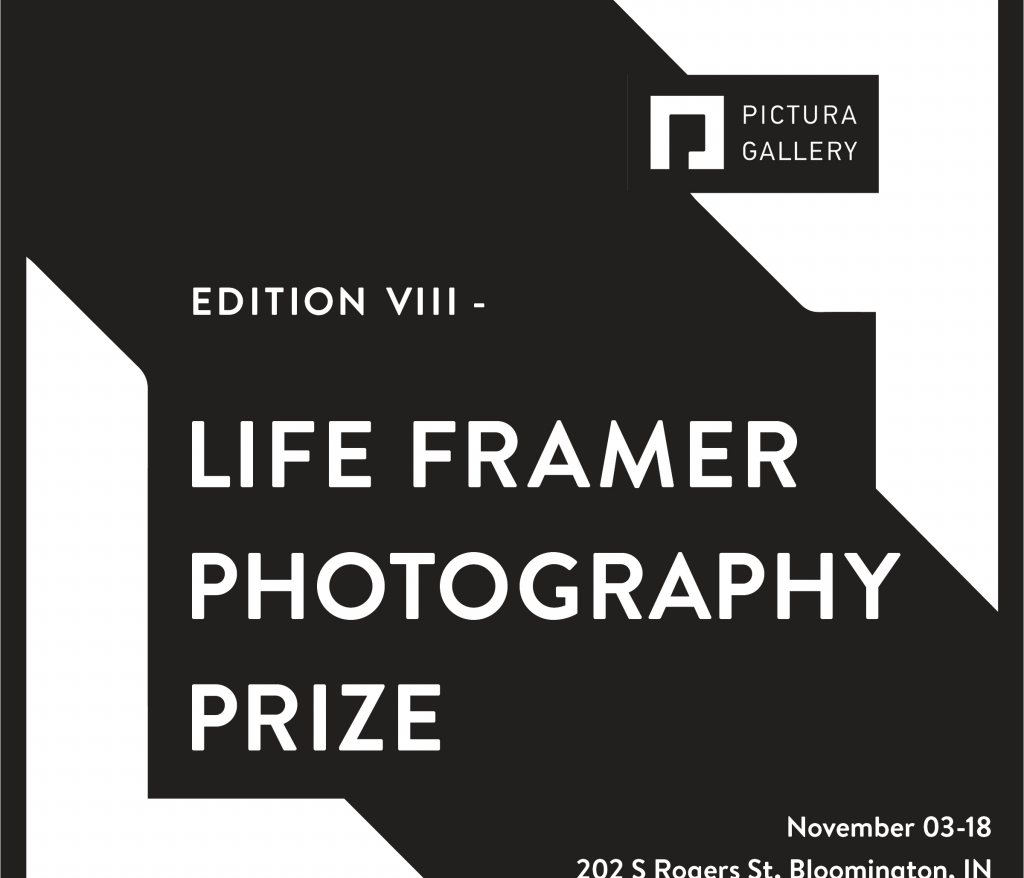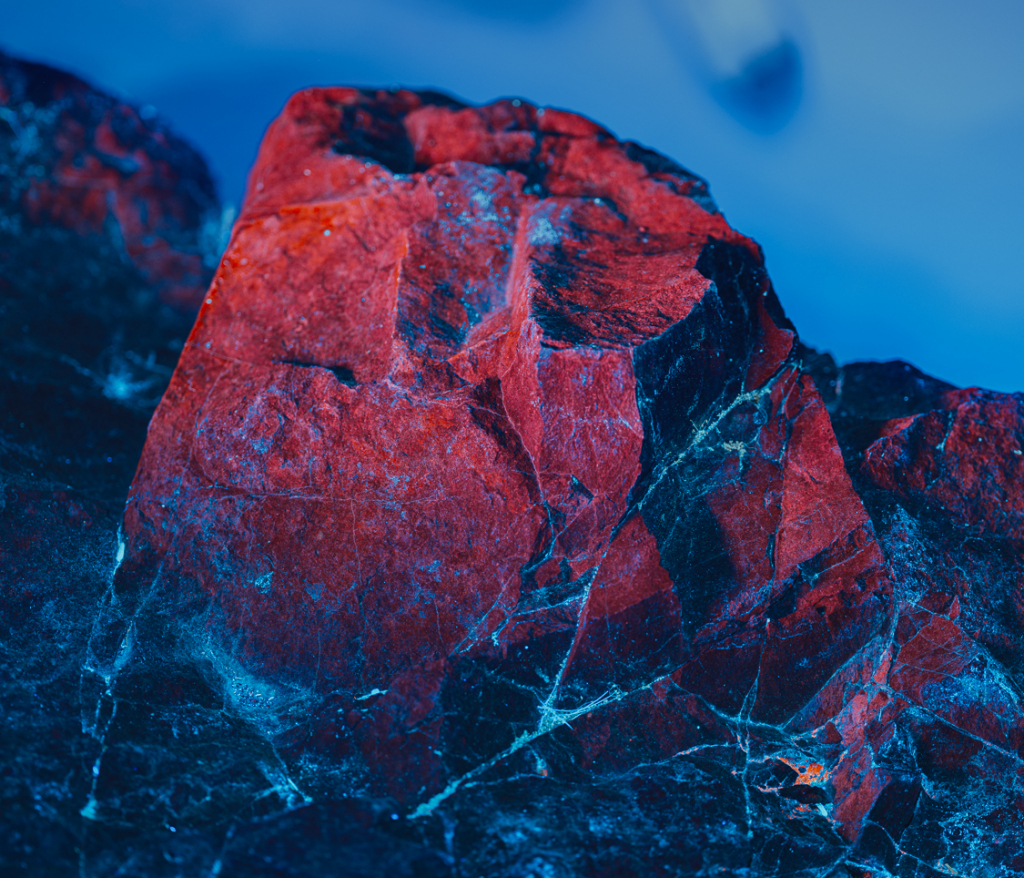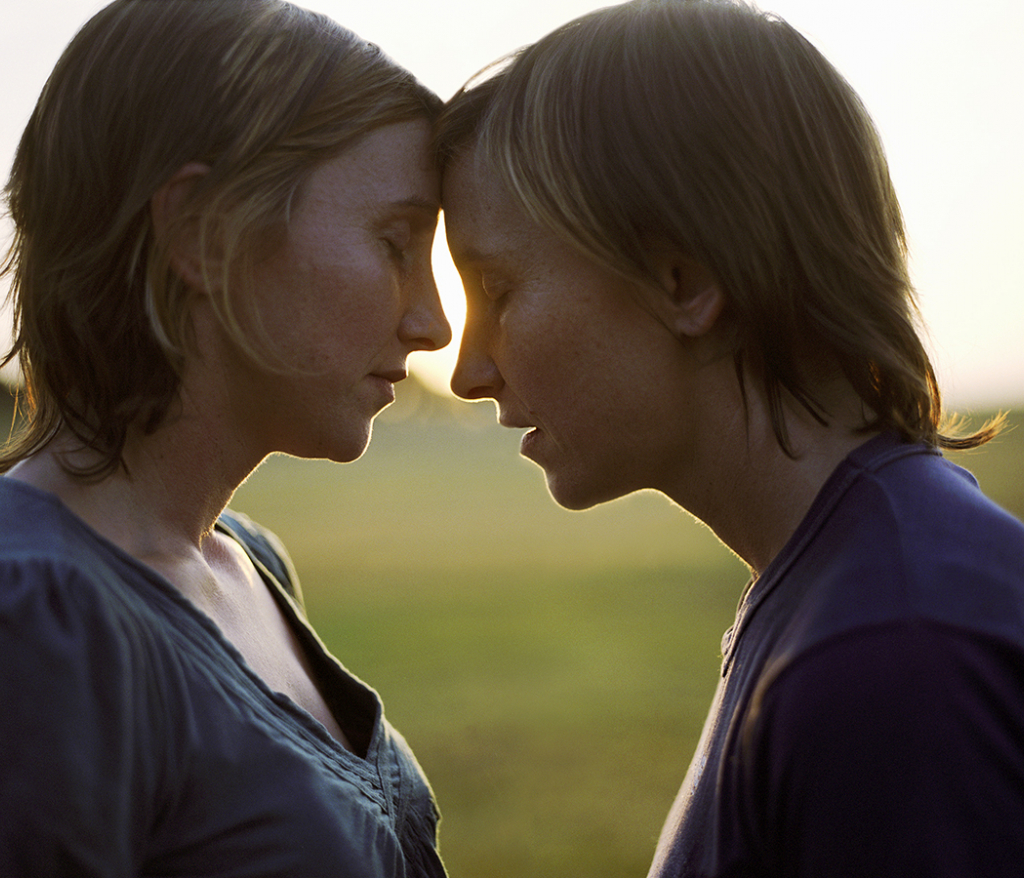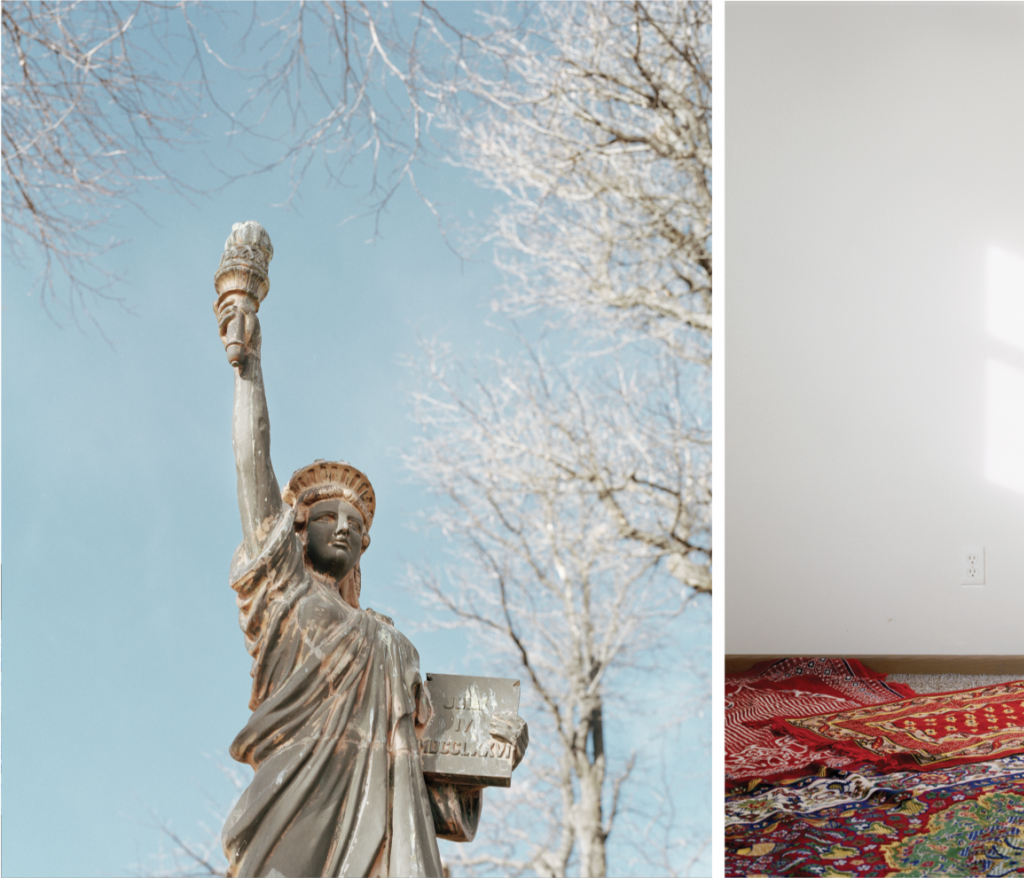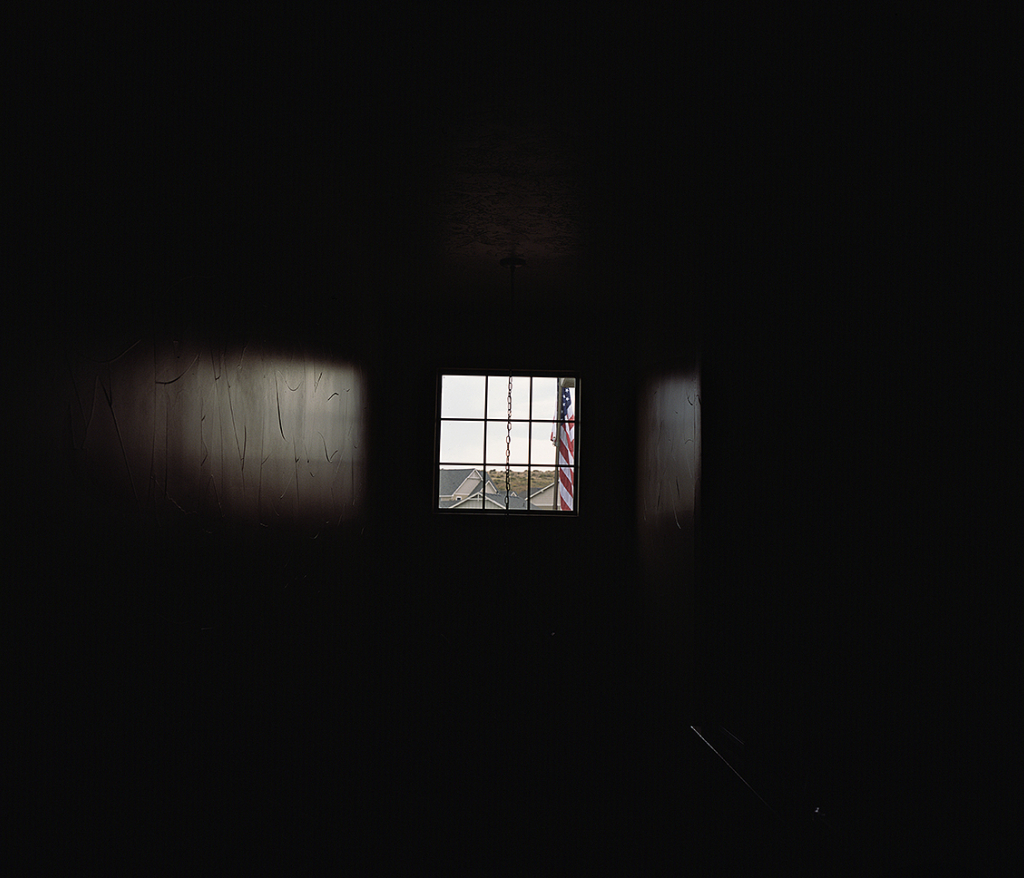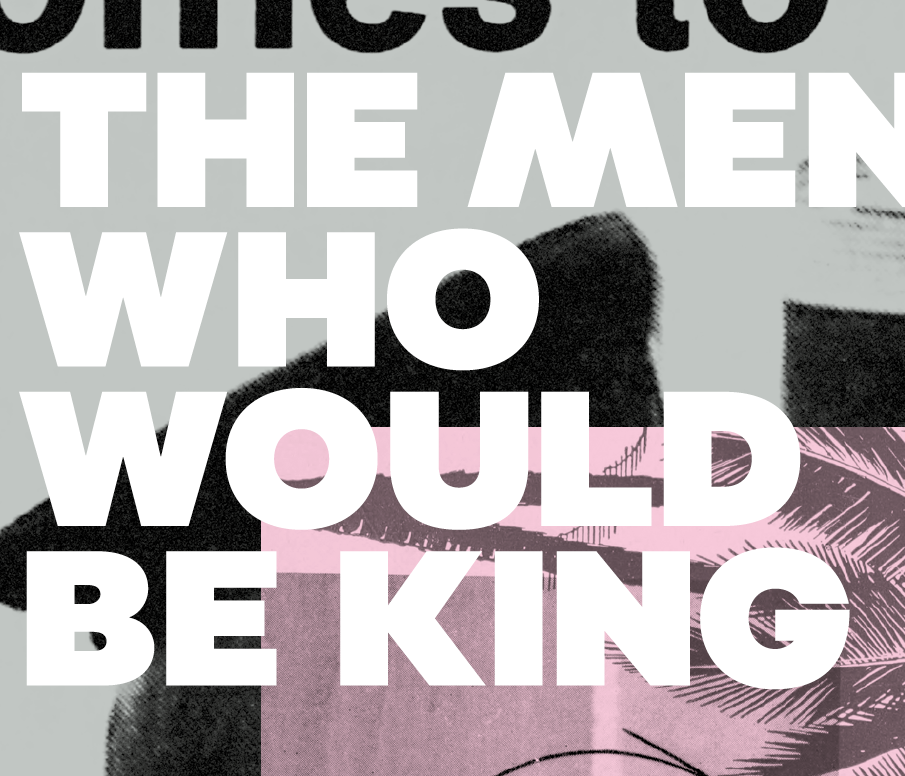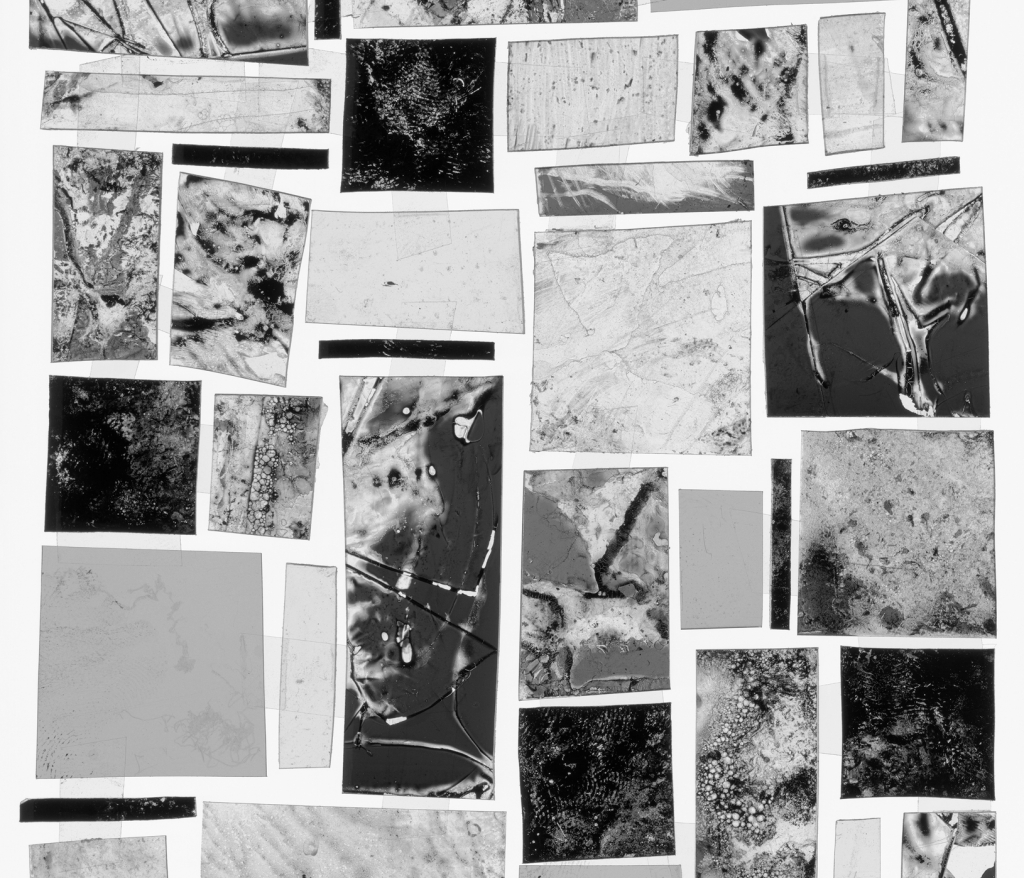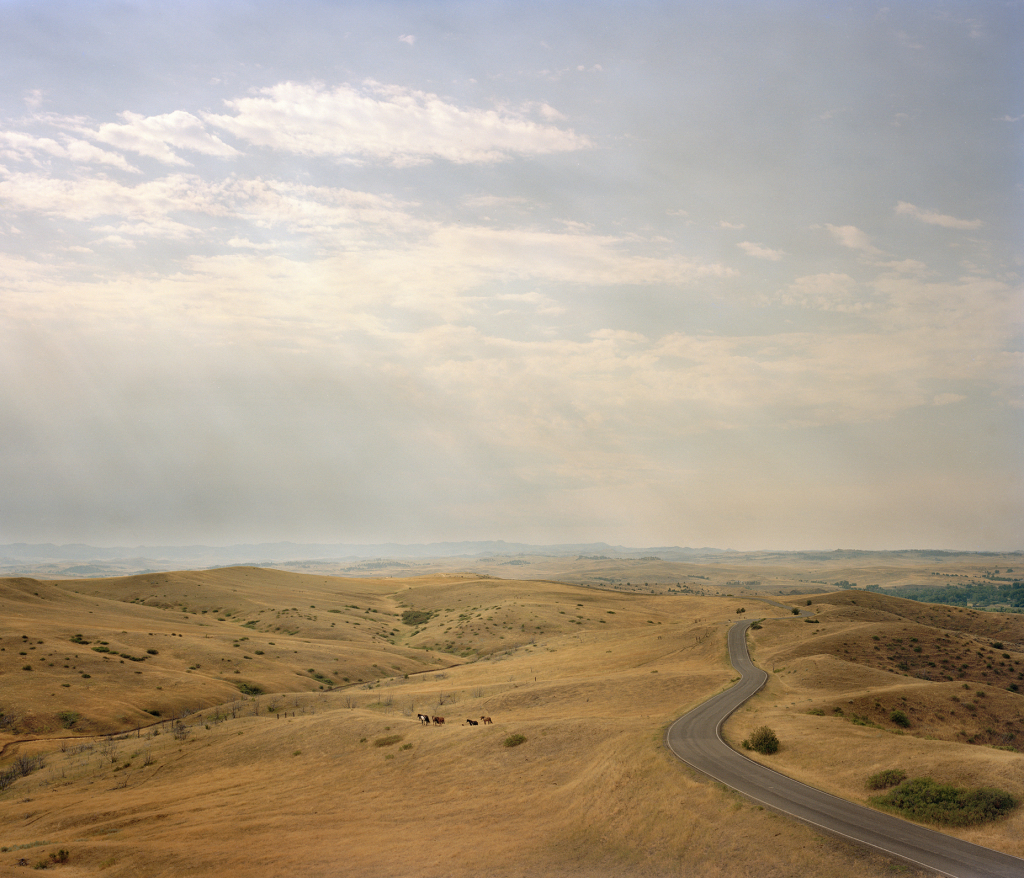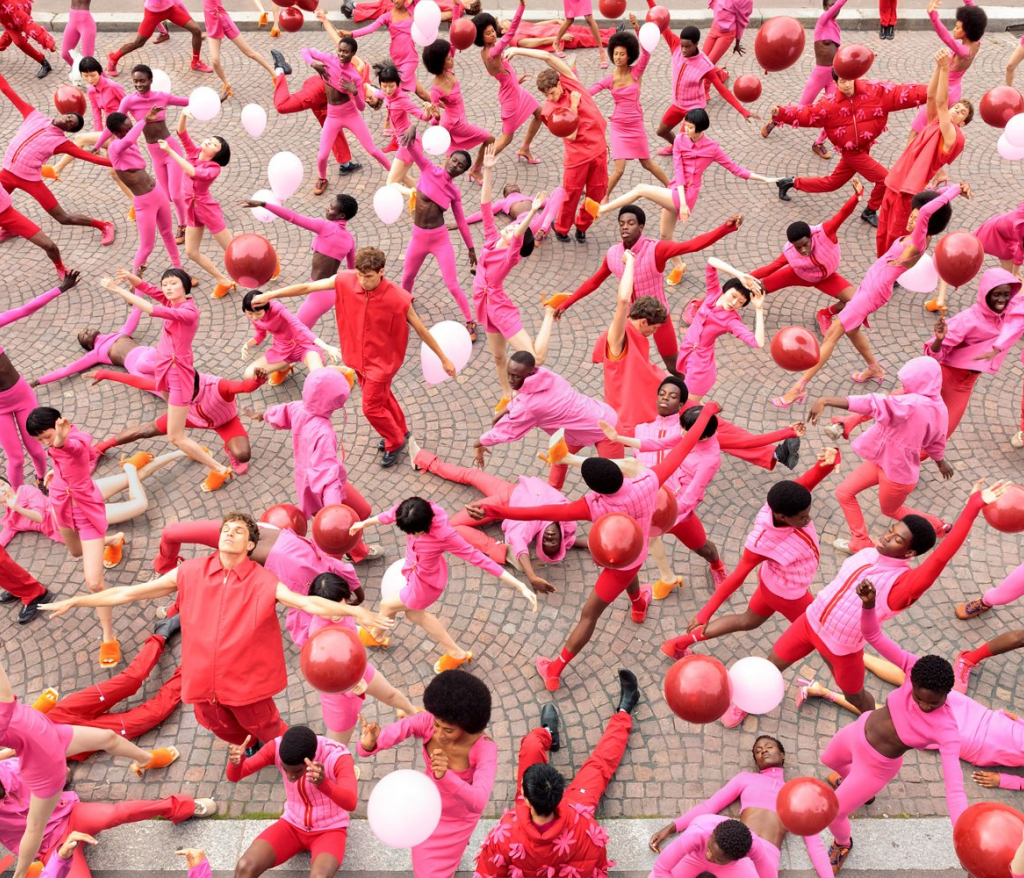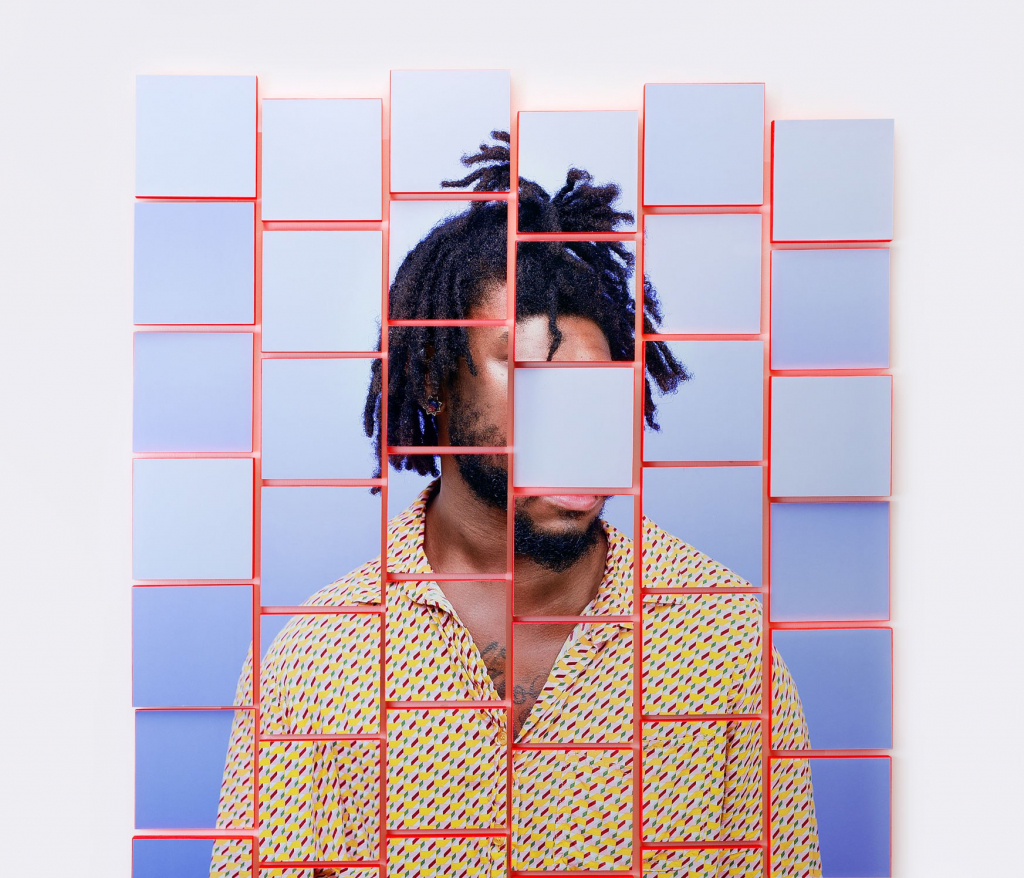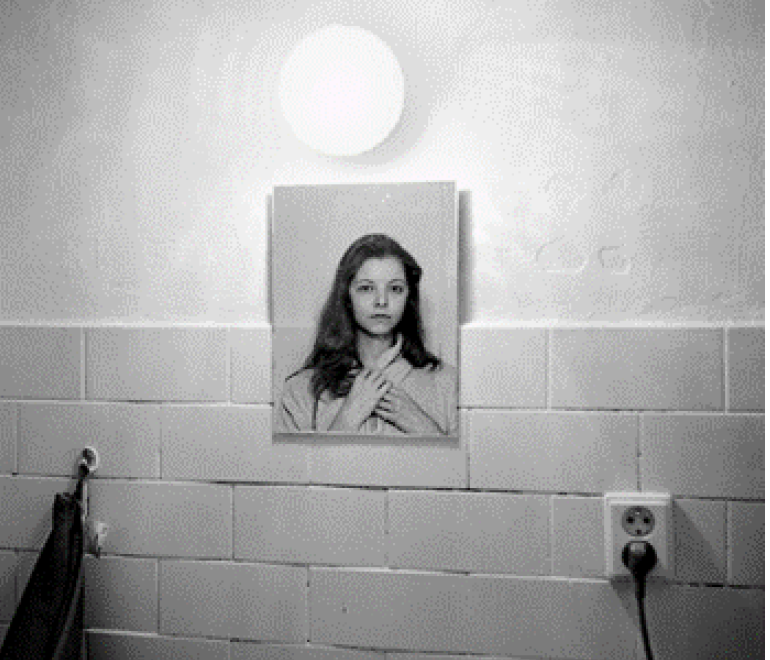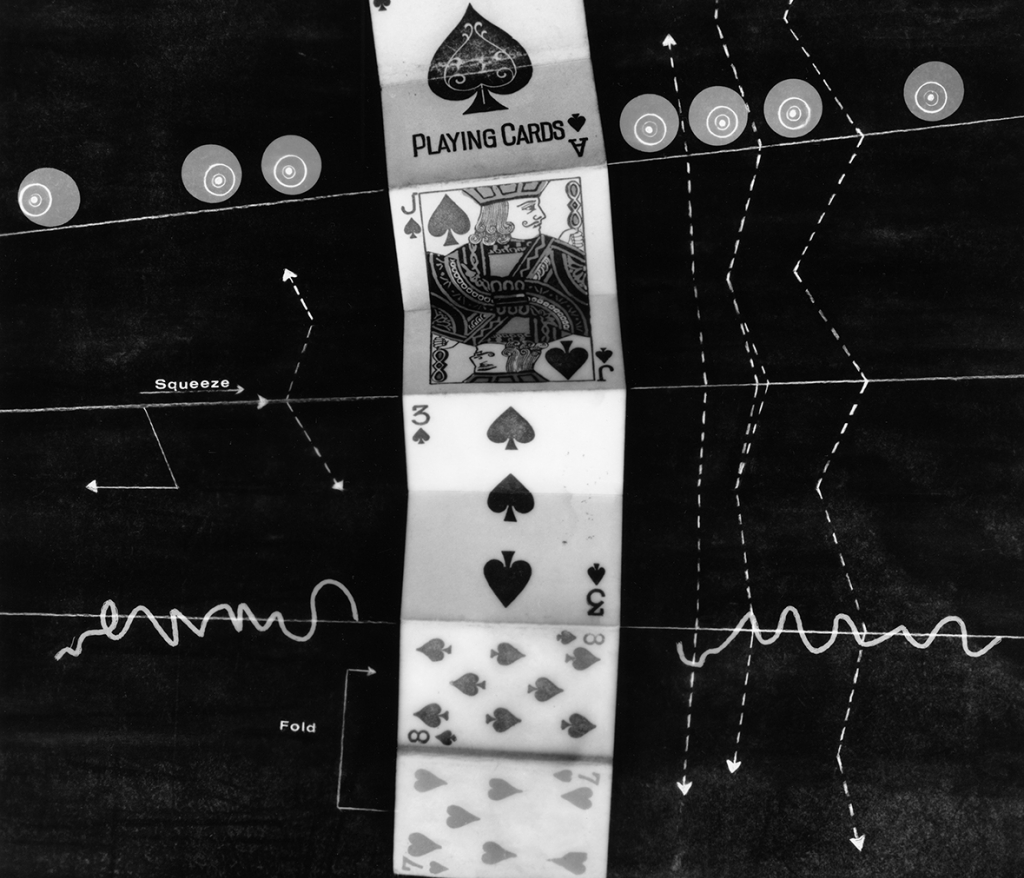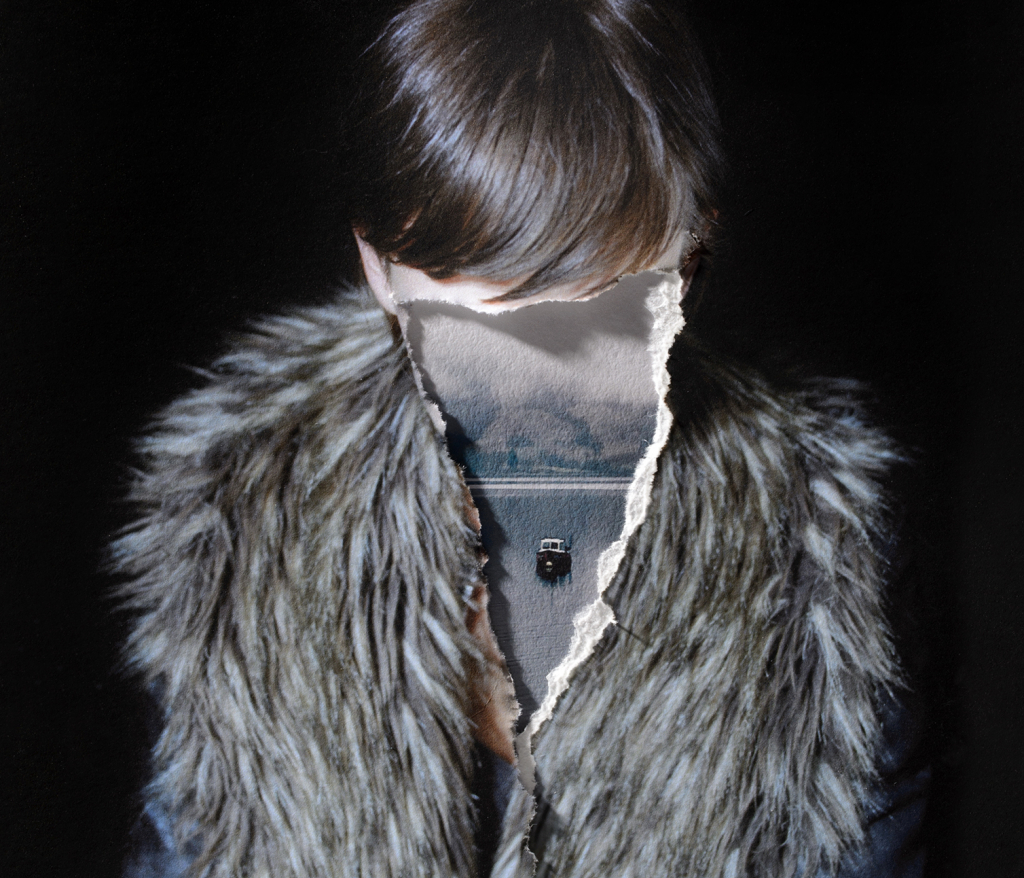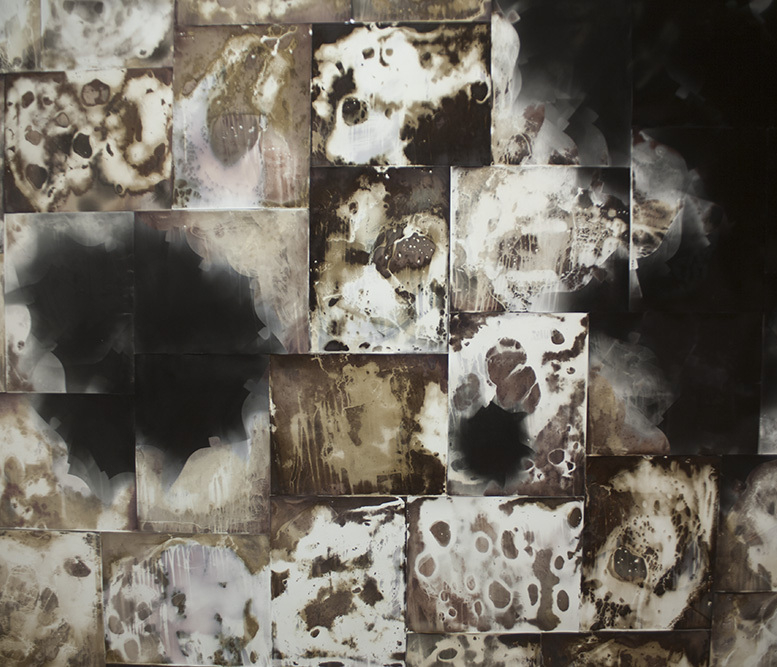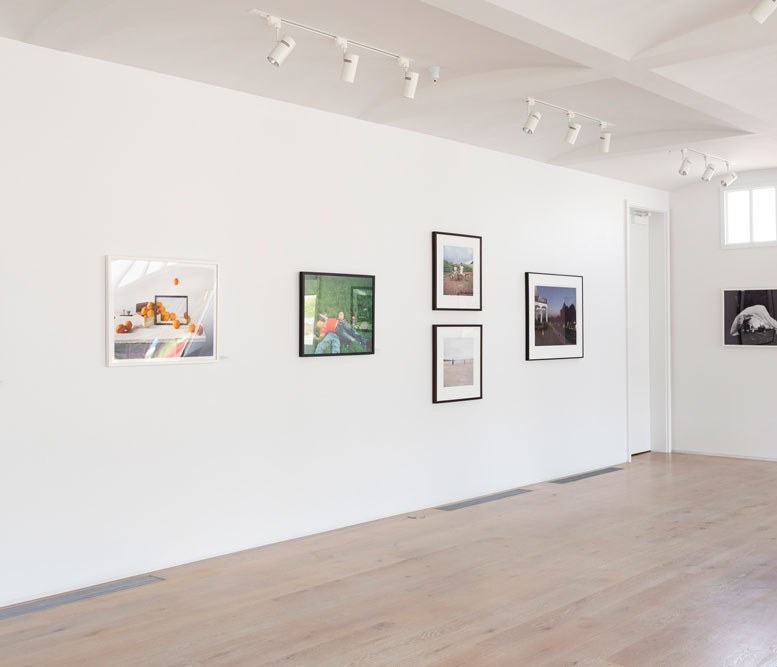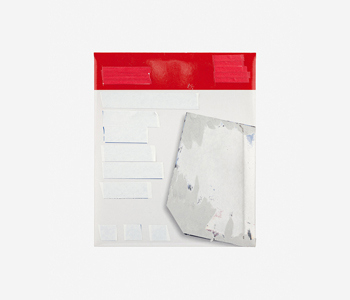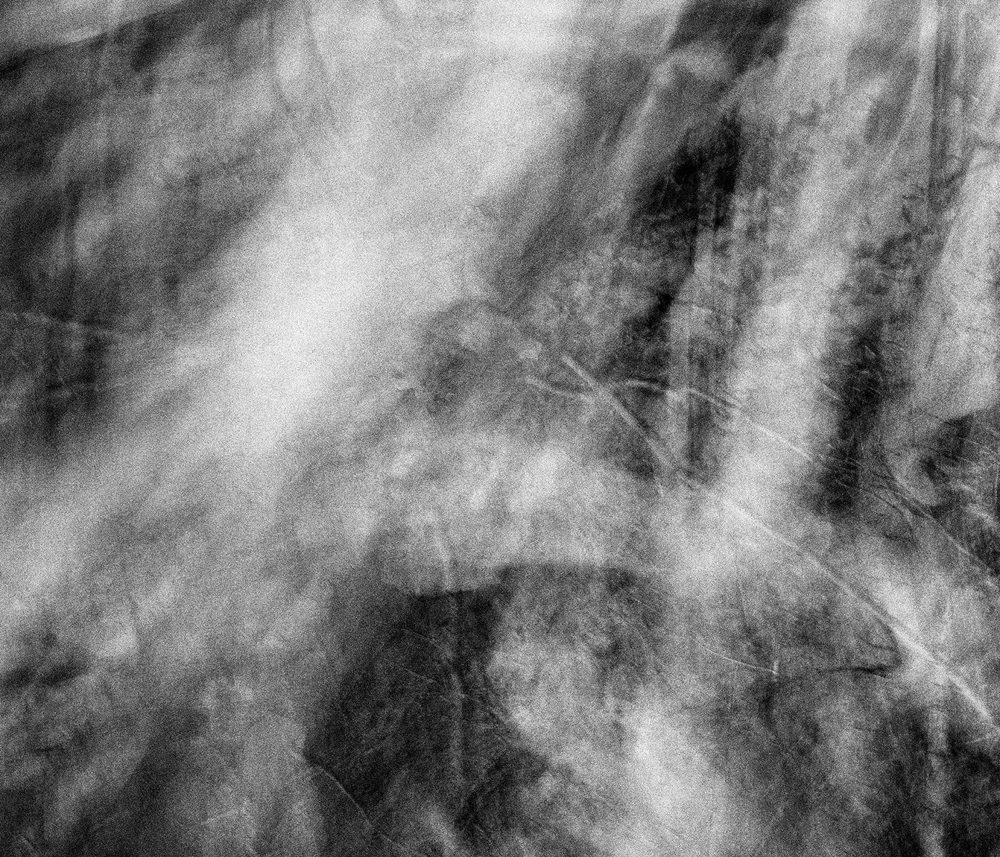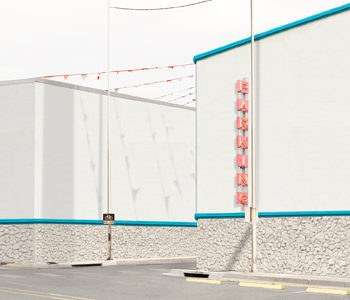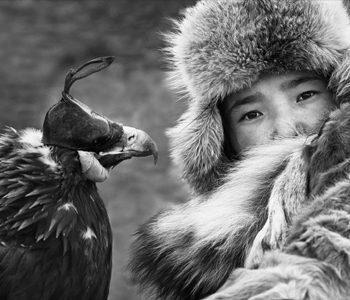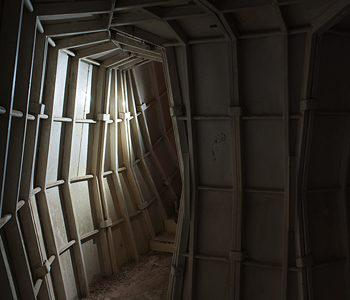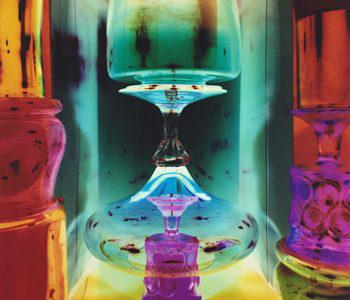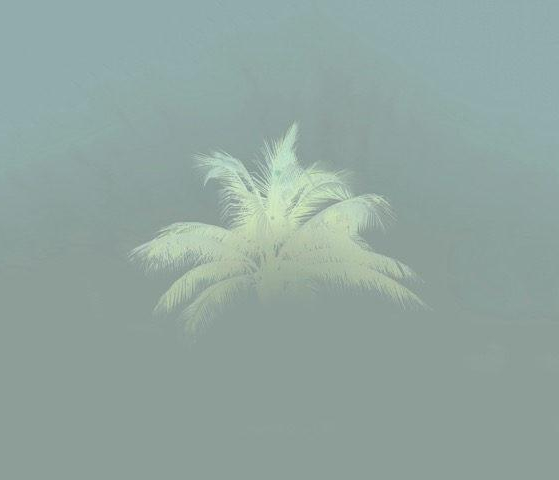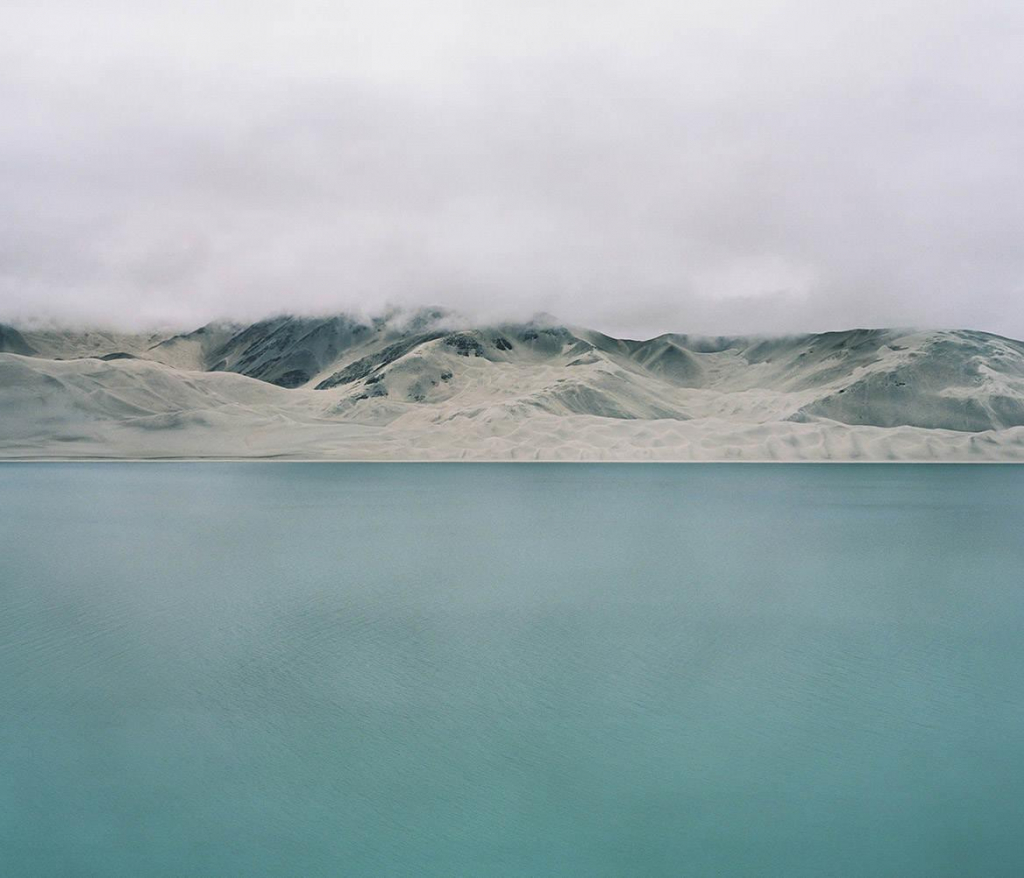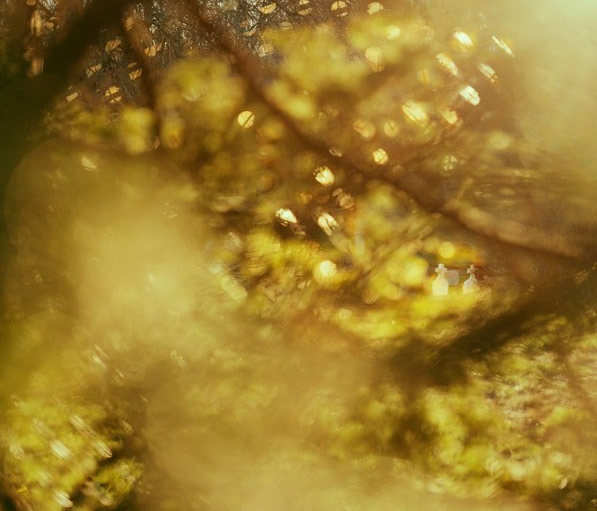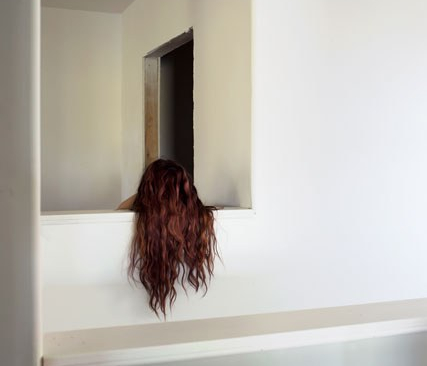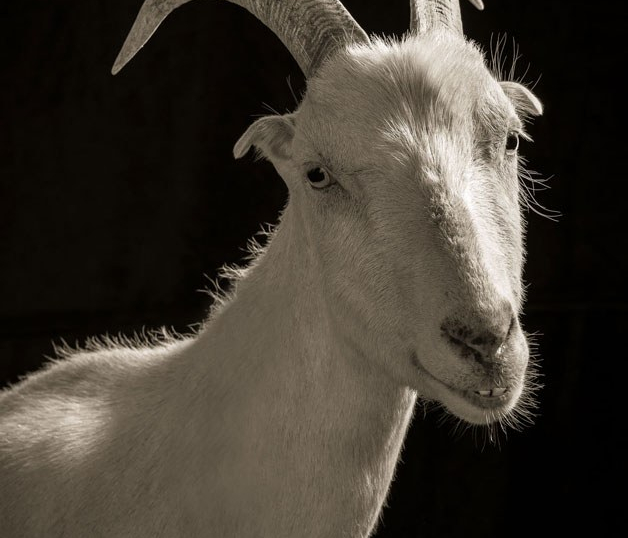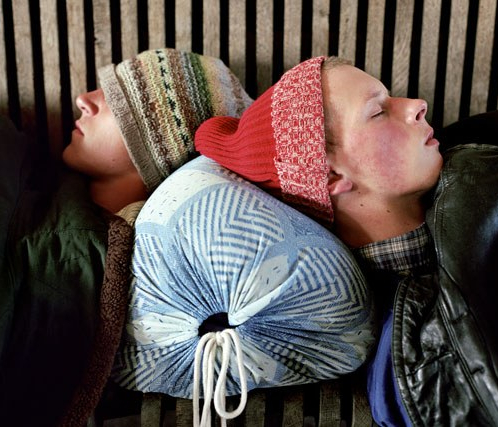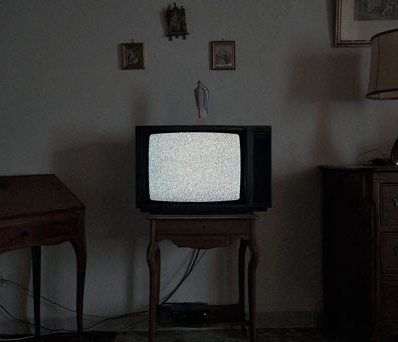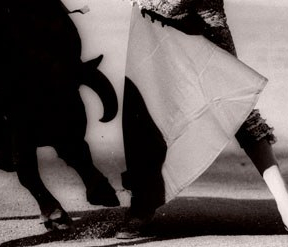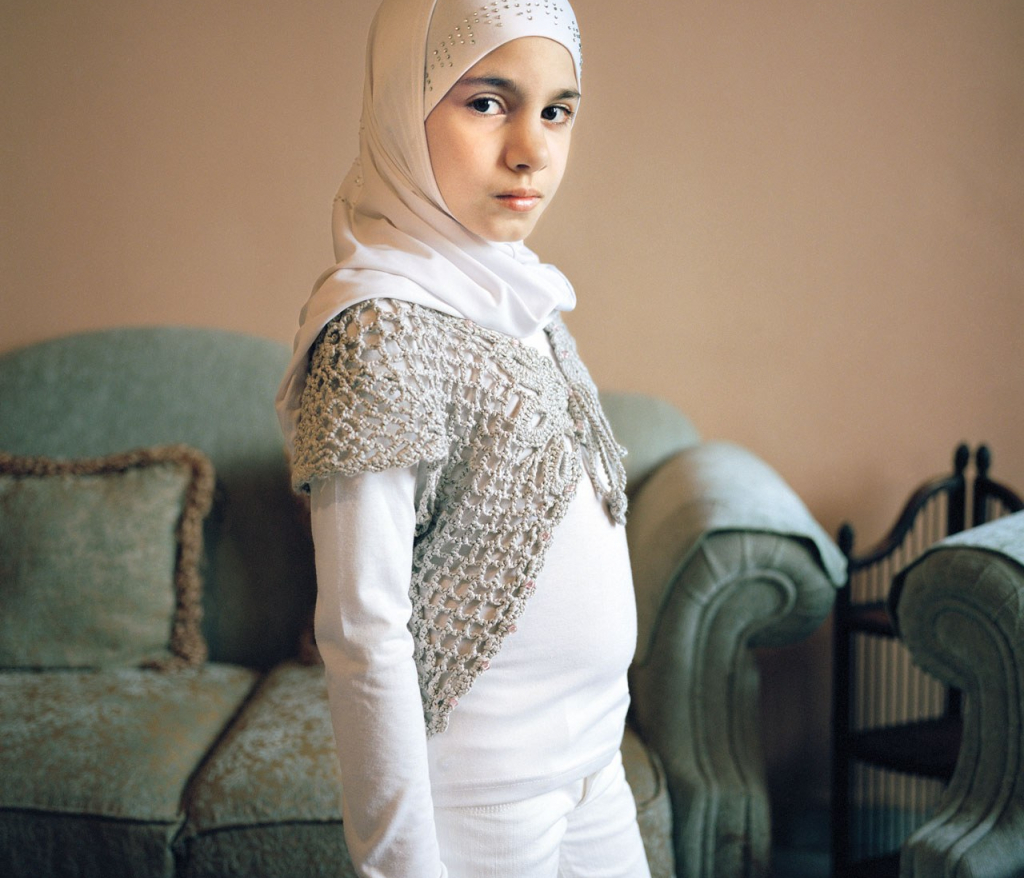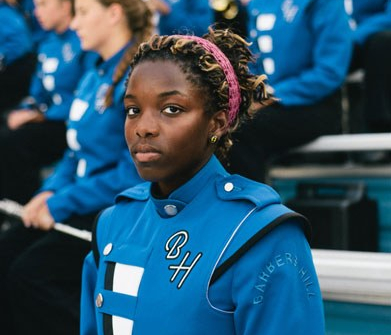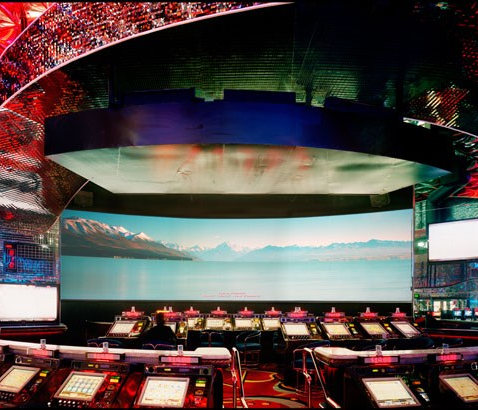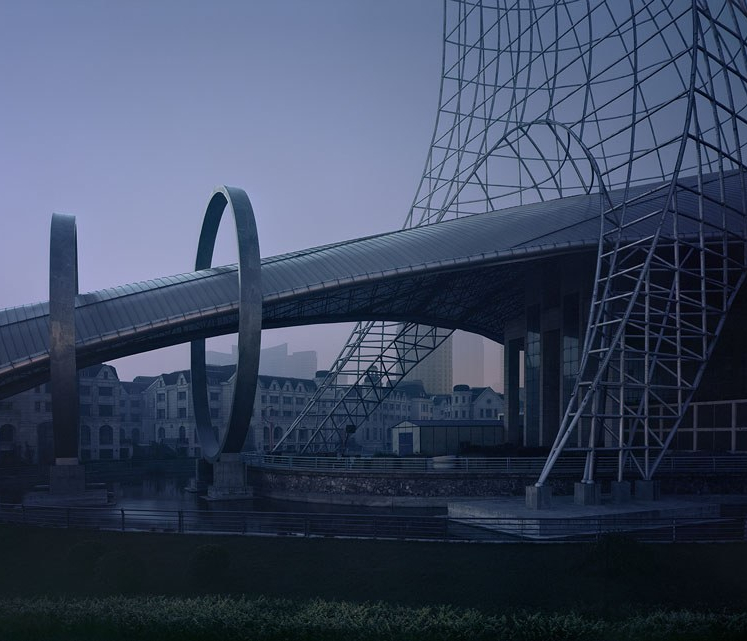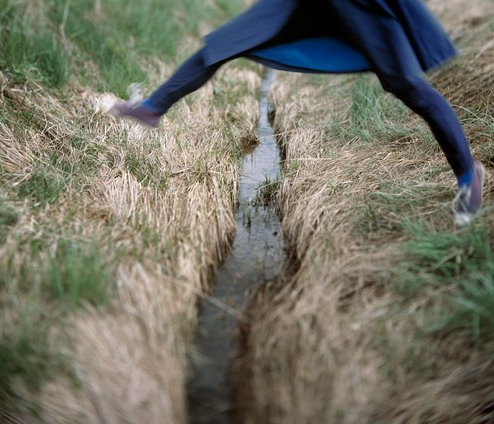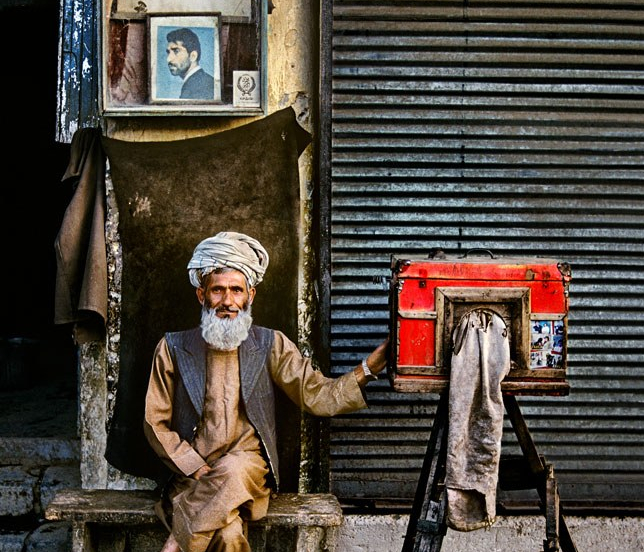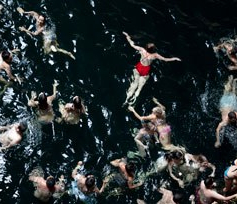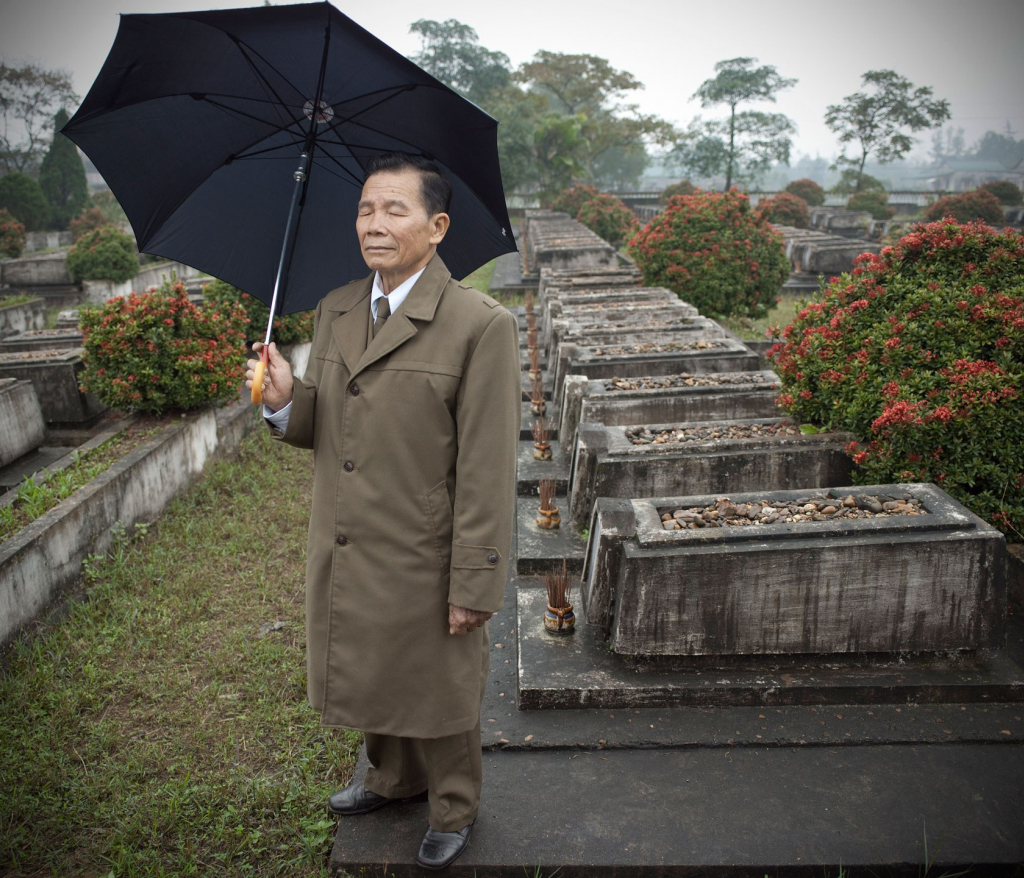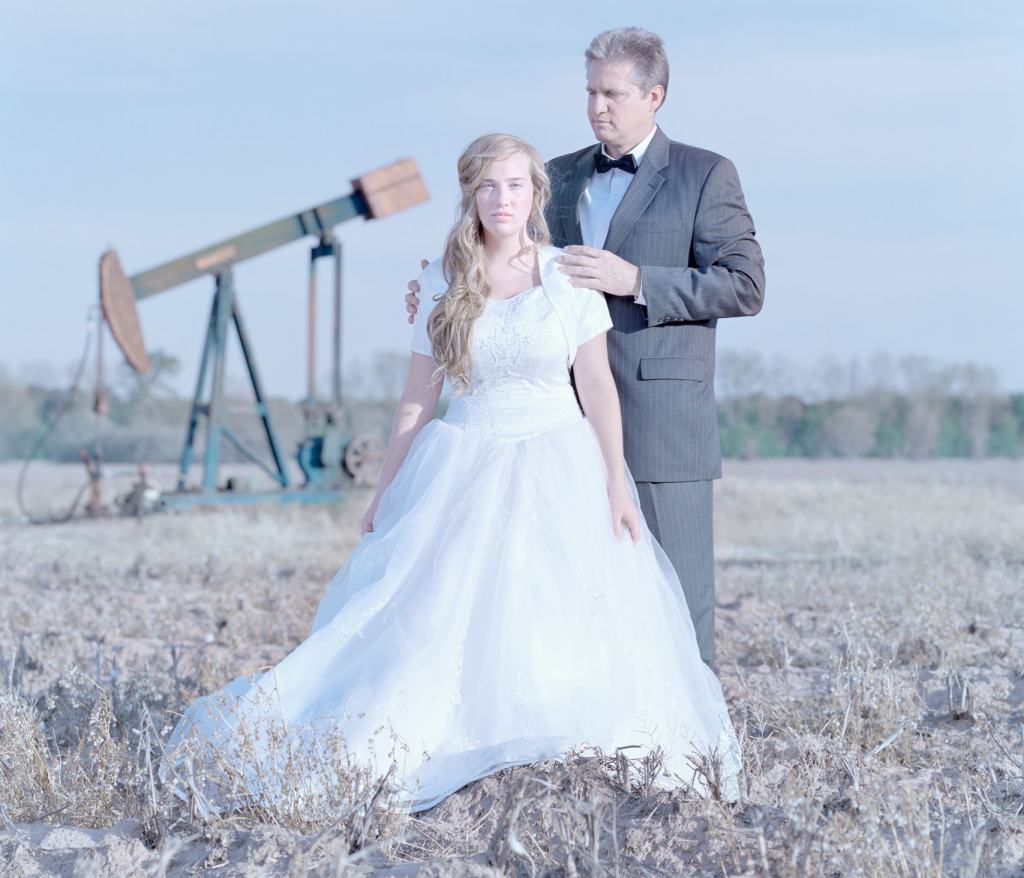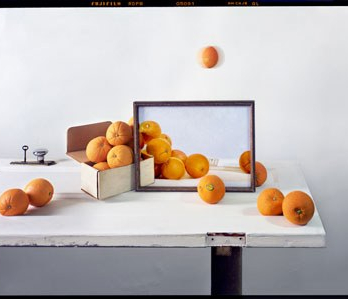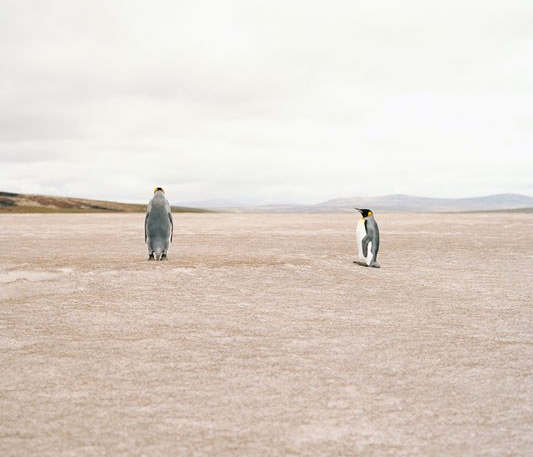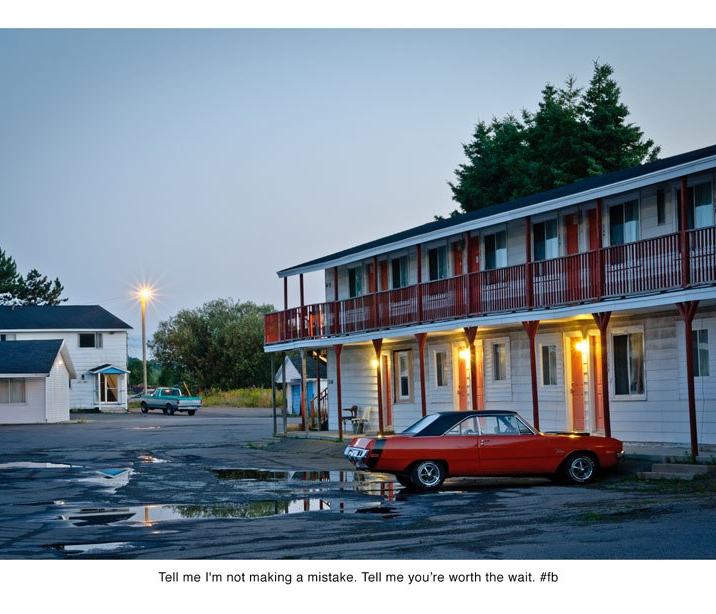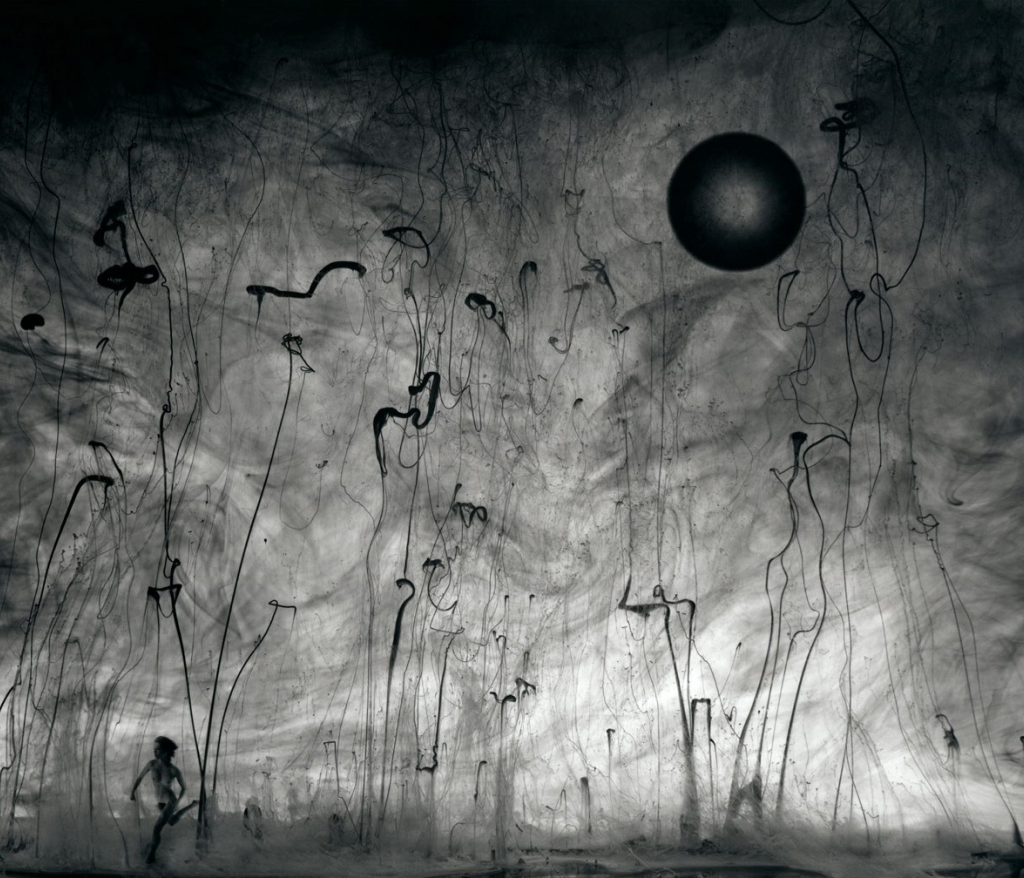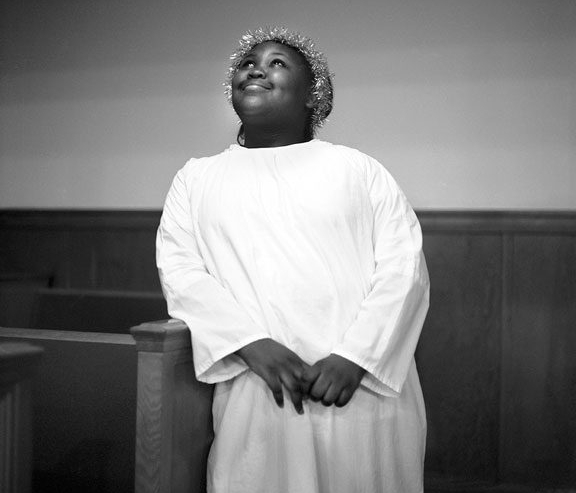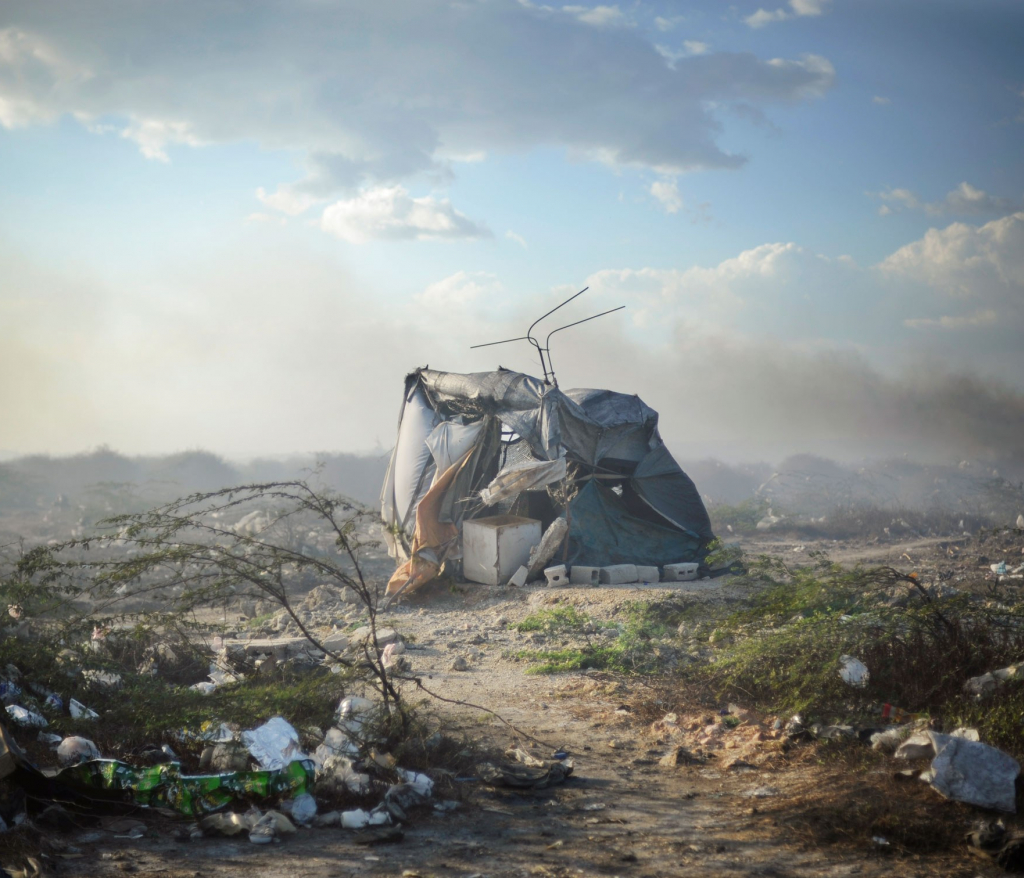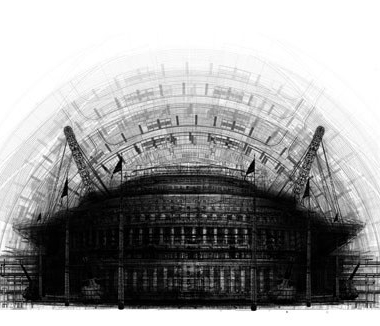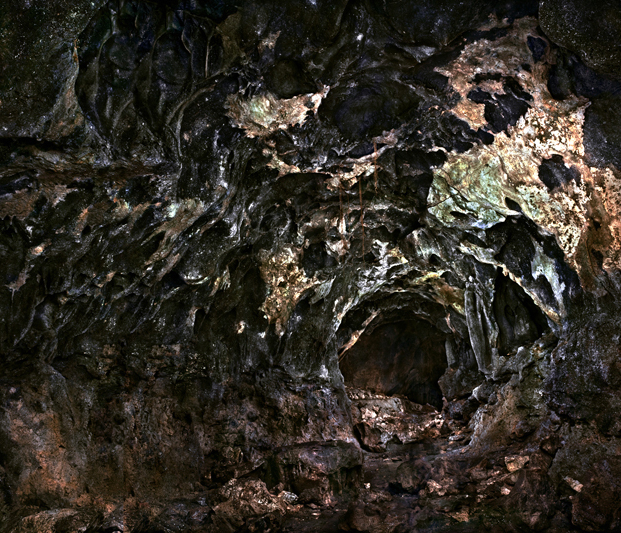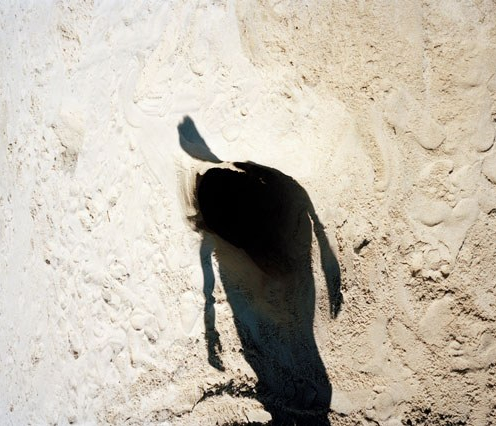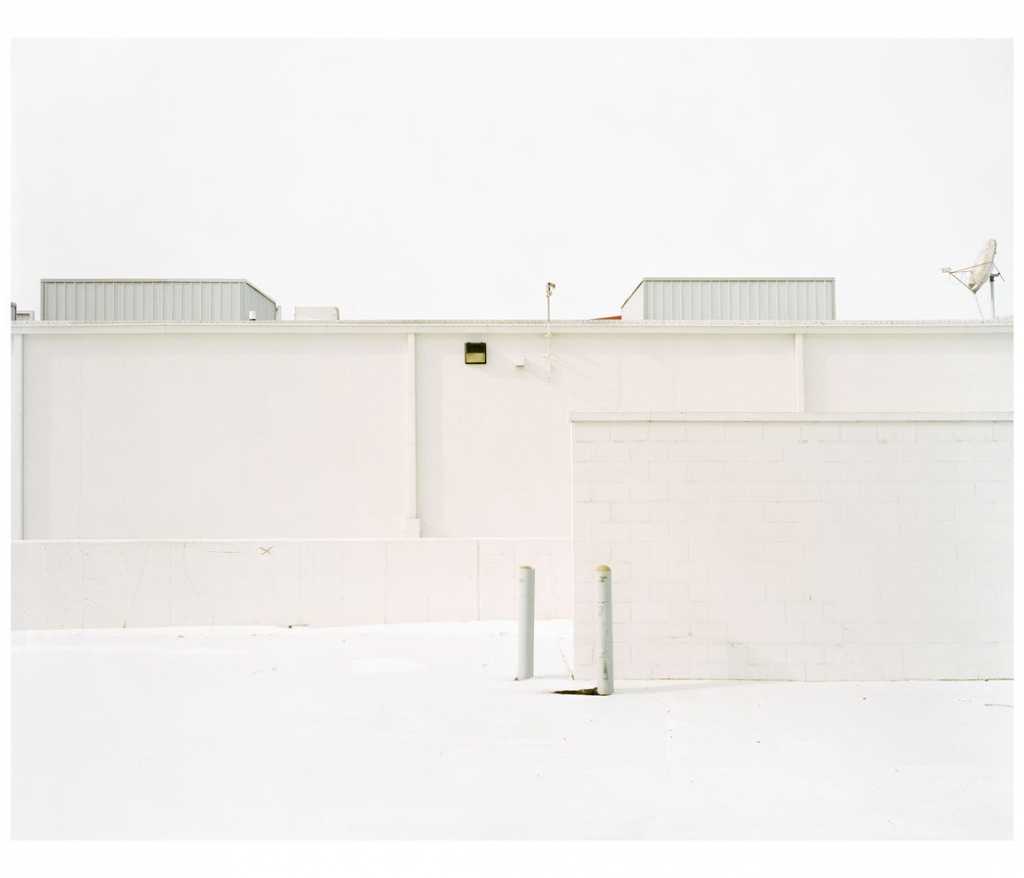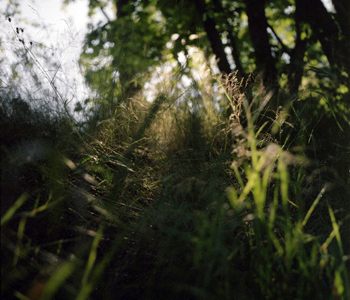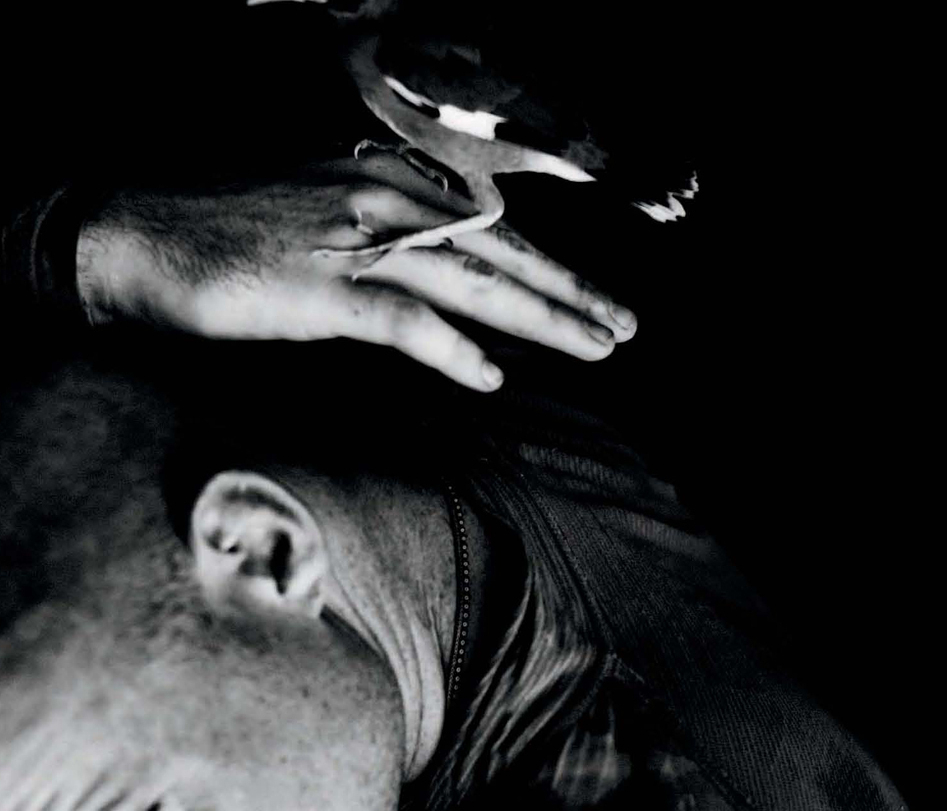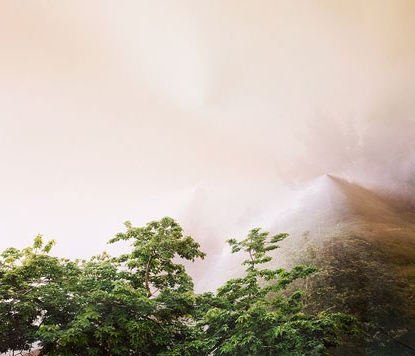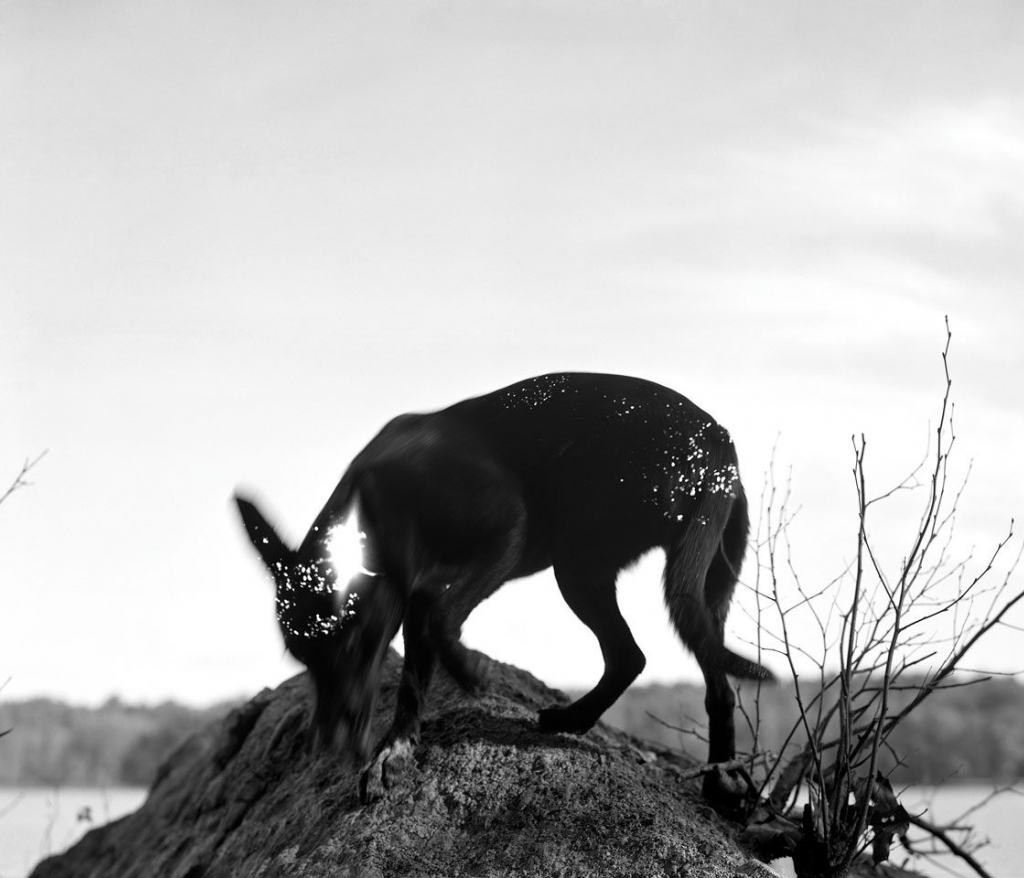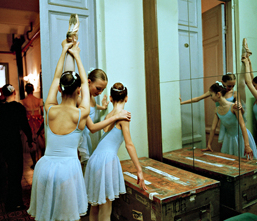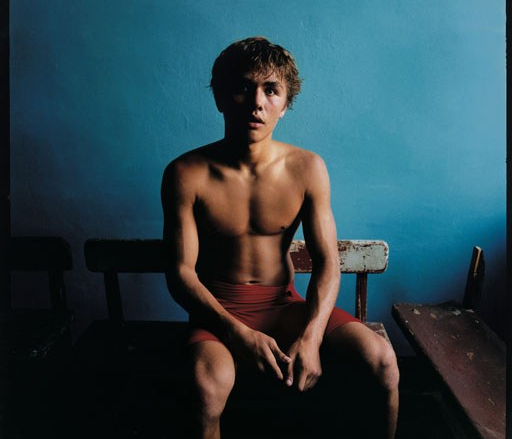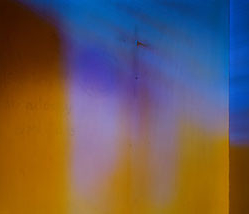Rania Matar
Becoming
Rania Matar
Becoming
Becoming is a continuum of Rania Matar’s work from the past several years, and it’s a feast to view her multiple projects together. Through this collection of portraits, Matar leads us through many stages in the life of a woman. She photographs girls and young women from the US and from Lebanon, her country of origin. Matar notes, “These are not meant to be a comparison, on the contrary, as the lines blur quickly. Regardless of place, background and religion, girls that age everywhere seem united by similar feelings, aspirations and attitudes.”
The word “becoming” speaks to the whole cycle of growth but is perhaps best seen in two projects. In a still-developing body of work, Matar has returned to re-photograph the young women in the same environment as they’ve aged. In the tradition of the Dutch photographer Rineke Dijkstra, she has patiently employed the element of time, and it powerfully charts the change of growing up.
In “Unspoken Conversations” Matar photographs young women with their mothers, a different and equally potent vision of growing older. The viewer is left to marvel at the similarities, imagining the form one woman came from, projecting the form the other may eventually take. Mother and daughter mirror one another and differentiate themselves like shifting magnetic poles. The women exchange gestures that take on new meaning as they echo one another.
The profundity of each portrait compounds upon the next. As viewers, we are drawn into the subtlety of pose and attention to detail that Matar uses to weave together her portraits. The poised and refined quality of Matar’s composition contrasts the very real vulnerability of her subjects. It gives her images an unusual beauty; the sophisticated adult aesthetic of the female image maker creates a graceful vehicle for the spontaneous and unfiltered self presentation of the young subjects. The resulting imagery is carefully sensitive to its subjects, while still revealing the complex world of emotions they inhabit.
Becoming is the natural continuation of L'Enfant-Femme, a series of portraits of pre-teen girls and how they interact with the camera. My aim is to portray the girls' sense of identity when allowed to pose themselves as they wish in front of the camera, and to capture alternatively the angst, the self-confidence or lack thereof, the body language, the sense of selfhood and the developing sense of sexuality and womanhood girls this age begin to experience. With the intent of keeping them away from the "selfie" poses that they are trained to perform for the camera, I only ask the girls not to smile and I allow them to fall into their own poses. As I am using medium format film camera, they cannot instantly see the photographs. Accustomed to the instant gratification of viewing themselves through digital photography, the girls experience the suspense of not knowing immediately how they will be represented and they take the photo session more seriously.
Over the past year, I started photographing again some of the girls I had photographed three years earlier – both in the United States and in the Middle East. While they ranged from 9 to 12 the first time I had photographed them, they were now 13 to 16 and they had transformed. It is touching and endearing to observe the changes in their bodies and in their attitudes, to simultaneously see the individuality of each girl as she develops her own identity, but also the universality of being a girl undergoing those natural transformations. Subtle changes in body language, hand gestures, feet positions and attitude are the focus of these photographs.
Rania Matar is a Guggenheim 2018 Fellow.
She was born and raised in Lebanon and moved to the U.S. in 1984. As a Lebanese-born American woman and mother, Matar's cultural background, cross-cultural experience, and personal narrative inform her photography. She has dedicated her work to exploring issues of personal and collective identity, through photographs of female adolescence and womanhood - both in the United States where she lives and the Middle East where she is from, in an effort to focus on notions of identity and individuality all within the context of the underlying universality of these experiences.
Matar's work has been widely published and exhibited in museums worldwide, including the Museum of Fine Arts, Boston, the Carnegie Museum of Art, National Museum of Women in the Arts, and more. A mid-career retrospective of her work was recently on view at the Cleveland Museum of Art, and at the Amon Carter Museum of American Art, in a solo exhibition: In Her Image: Photographs by Rania Matar.
She has received several grants and awards including a 2018 Guggenheim Fellowship, 2017 Mellon Foundation artist-in-residency grant at the Gund Gallery at Kenyon College, 2011 Legacy Award at the Griffin Museum of Photography, 2011 and 2007 Massachusetts Cultural Council artist fellowships. In 2008 she was a finalist for the Foster Award at the Institute of Contemporary Art/Boston, with an accompanying solo exhibition.
Her work is in the permanent collections of several museums, institutions and private collections worldwide.
She has published three books:
L'Enfant-Femme, 2016, with an introduction by Her Majesty Queen Noor, and essays by Lois Lowry and Kristen Gresh. Selected best photo book of 2016 by PDN Magazine and Foto Infinitum, and Staff Pick by the Christian Science Monitor.
A Girl and Her Room, 2012, essays by Anne Tucker and Susan Minot. Selected best photo book of 2012 by PDN, Photo-Eye, British Journal of Photography, Feature Shoot and L'Oeil de la Photographie.
Ordinary Lives, 2009, essay by Anthony Shadid. Selected a best photo book of 2009 by Photo-Eye.
She is currently associate professor of photography at the Massachusetts College of Art and Design, and regularly offers workshops, talks, class visits and lectures at museums, galleries, schools and colleges in the US and abroad.
Rania Matar
Becoming
Becoming is a continuum of Rania Matar’s work from the past several years, and it’s a feast to view her multiple projects together. Through this collection of portraits, Matar leads us through many stages in the life of a woman. She photographs girls and young women from the US and from Lebanon, her country of origin. Matar notes, “These are not meant to be a comparison, on the contrary, as the lines blur quickly. Regardless of place, background and religion, girls that age everywhere seem united by similar feelings, aspirations and attitudes.”
The word “becoming” speaks to the whole cycle of growth but is perhaps best seen in two projects. In a still-developing body of work, Matar has returned to re-photograph the young women in the same environment as they’ve aged. In the tradition of the Dutch photographer Rineke Dijkstra, she has patiently employed the element of time, and it powerfully charts the change of growing up.
In “Unspoken Conversations” Matar photographs young women with their mothers, a different and equally potent vision of growing older. The viewer is left to marvel at the similarities, imagining the form one woman came from, projecting the form the other may eventually take. Mother and daughter mirror one another and differentiate themselves like shifting magnetic poles. The women exchange gestures that take on new meaning as they echo one another.
The profundity of each portrait compounds upon the next. As viewers, we are drawn into the subtlety of pose and attention to detail that Matar uses to weave together her portraits. The poised and refined quality of Matar’s composition contrasts the very real vulnerability of her subjects. It gives her images an unusual beauty; the sophisticated adult aesthetic of the female image maker creates a graceful vehicle for the spontaneous and unfiltered self presentation of the young subjects. The resulting imagery is carefully sensitive to its subjects, while still revealing the complex world of emotions they inhabit.
Becoming is the natural continuation of L'Enfant-Femme, a series of portraits of pre-teen girls and how they interact with the camera. My aim is to portray the girls' sense of identity when allowed to pose themselves as they wish in front of the camera, and to capture alternatively the angst, the self-confidence or lack thereof, the body language, the sense of selfhood and the developing sense of sexuality and womanhood girls this age begin to experience. With the intent of keeping them away from the "selfie" poses that they are trained to perform for the camera, I only ask the girls not to smile and I allow them to fall into their own poses. As I am using medium format film camera, they cannot instantly see the photographs. Accustomed to the instant gratification of viewing themselves through digital photography, the girls experience the suspense of not knowing immediately how they will be represented and they take the photo session more seriously.
Over the past year, I started photographing again some of the girls I had photographed three years earlier – both in the United States and in the Middle East. While they ranged from 9 to 12 the first time I had photographed them, they were now 13 to 16 and they had transformed. It is touching and endearing to observe the changes in their bodies and in their attitudes, to simultaneously see the individuality of each girl as she develops her own identity, but also the universality of being a girl undergoing those natural transformations. Subtle changes in body language, hand gestures, feet positions and attitude are the focus of these photographs.
Rania Matar is a Guggenheim 2018 Fellow.
She was born and raised in Lebanon and moved to the U.S. in 1984. As a Lebanese-born American woman and mother, Matar's cultural background, cross-cultural experience, and personal narrative inform her photography. She has dedicated her work to exploring issues of personal and collective identity, through photographs of female adolescence and womanhood - both in the United States where she lives and the Middle East where she is from, in an effort to focus on notions of identity and individuality all within the context of the underlying universality of these experiences.
Matar's work has been widely published and exhibited in museums worldwide, including the Museum of Fine Arts, Boston, the Carnegie Museum of Art, National Museum of Women in the Arts, and more. A mid-career retrospective of her work was recently on view at the Cleveland Museum of Art, and at the Amon Carter Museum of American Art, in a solo exhibition: In Her Image: Photographs by Rania Matar.
She has received several grants and awards including a 2018 Guggenheim Fellowship, 2017 Mellon Foundation artist-in-residency grant at the Gund Gallery at Kenyon College, 2011 Legacy Award at the Griffin Museum of Photography, 2011 and 2007 Massachusetts Cultural Council artist fellowships. In 2008 she was a finalist for the Foster Award at the Institute of Contemporary Art/Boston, with an accompanying solo exhibition.
Her work is in the permanent collections of several museums, institutions and private collections worldwide.
She has published three books:
L'Enfant-Femme, 2016, with an introduction by Her Majesty Queen Noor, and essays by Lois Lowry and Kristen Gresh. Selected best photo book of 2016 by PDN Magazine and Foto Infinitum, and Staff Pick by the Christian Science Monitor.
A Girl and Her Room, 2012, essays by Anne Tucker and Susan Minot. Selected best photo book of 2012 by PDN, Photo-Eye, British Journal of Photography, Feature Shoot and L'Oeil de la Photographie.
Ordinary Lives, 2009, essay by Anthony Shadid. Selected a best photo book of 2009 by Photo-Eye.
She is currently associate professor of photography at the Massachusetts College of Art and Design, and regularly offers workshops, talks, class visits and lectures at museums, galleries, schools and colleges in the US and abroad.
